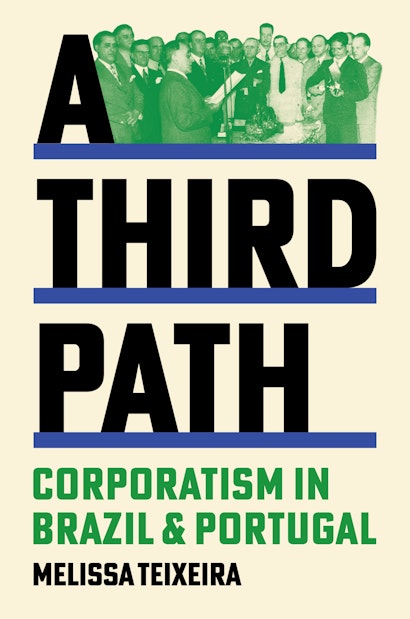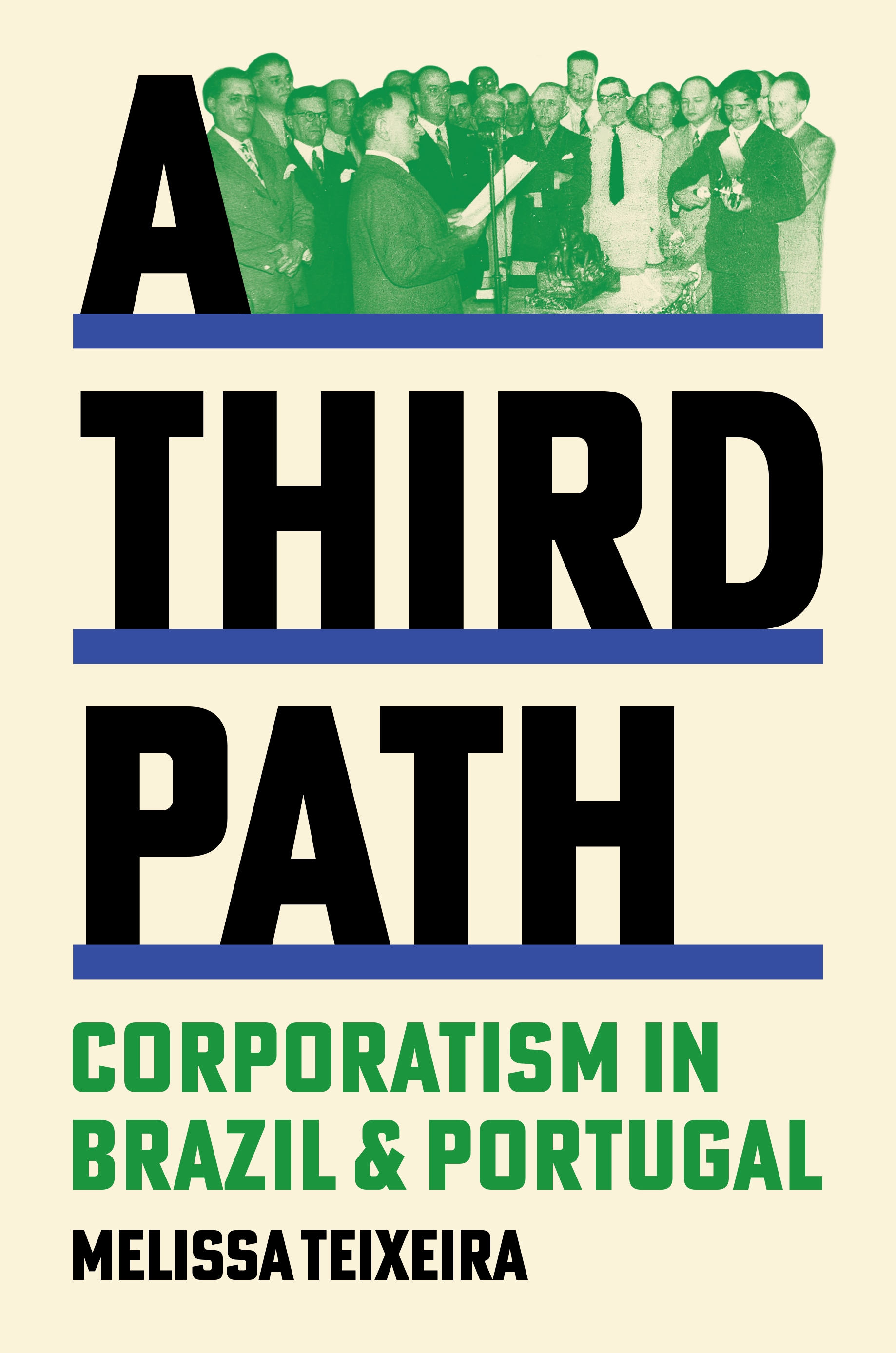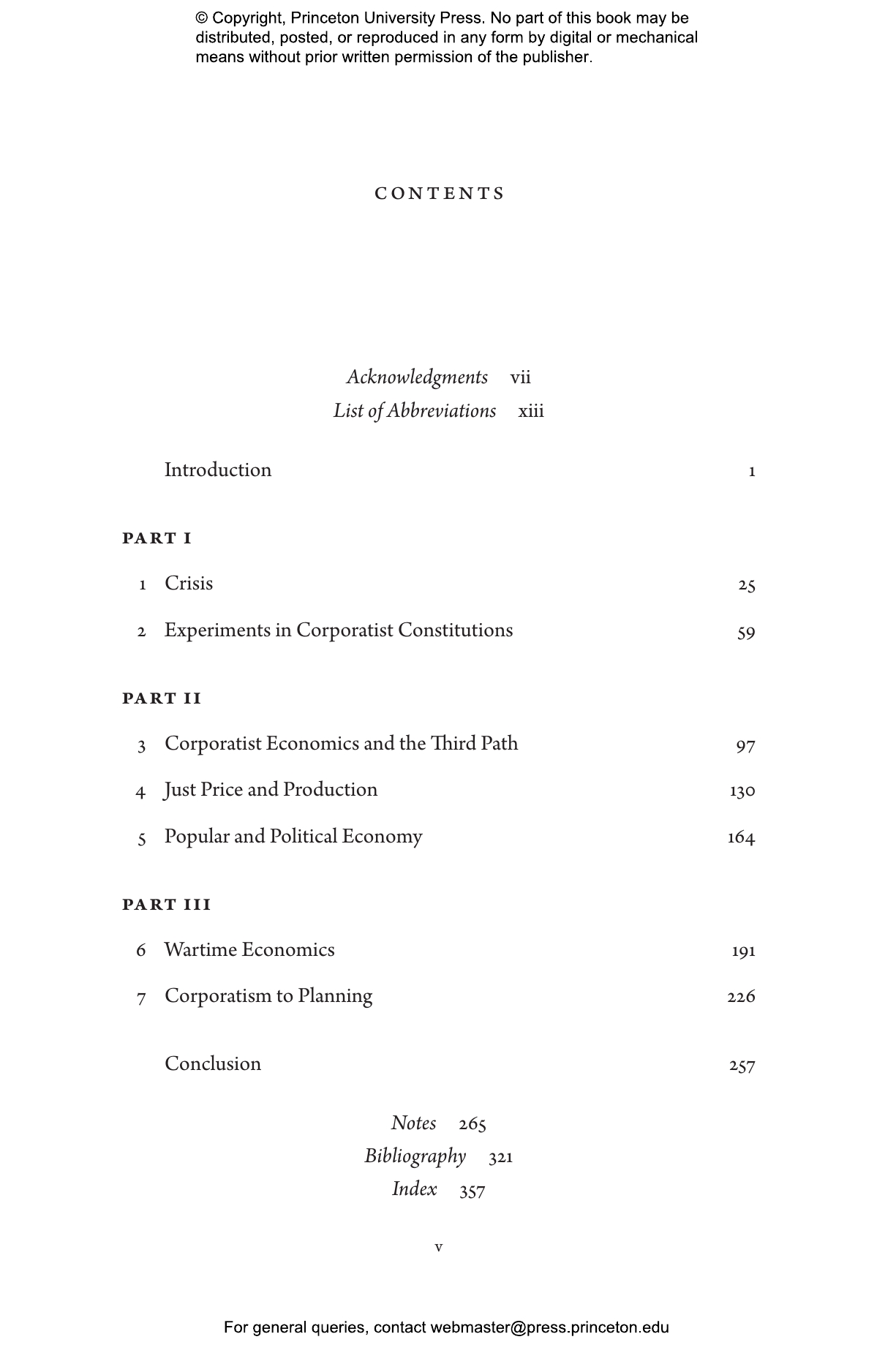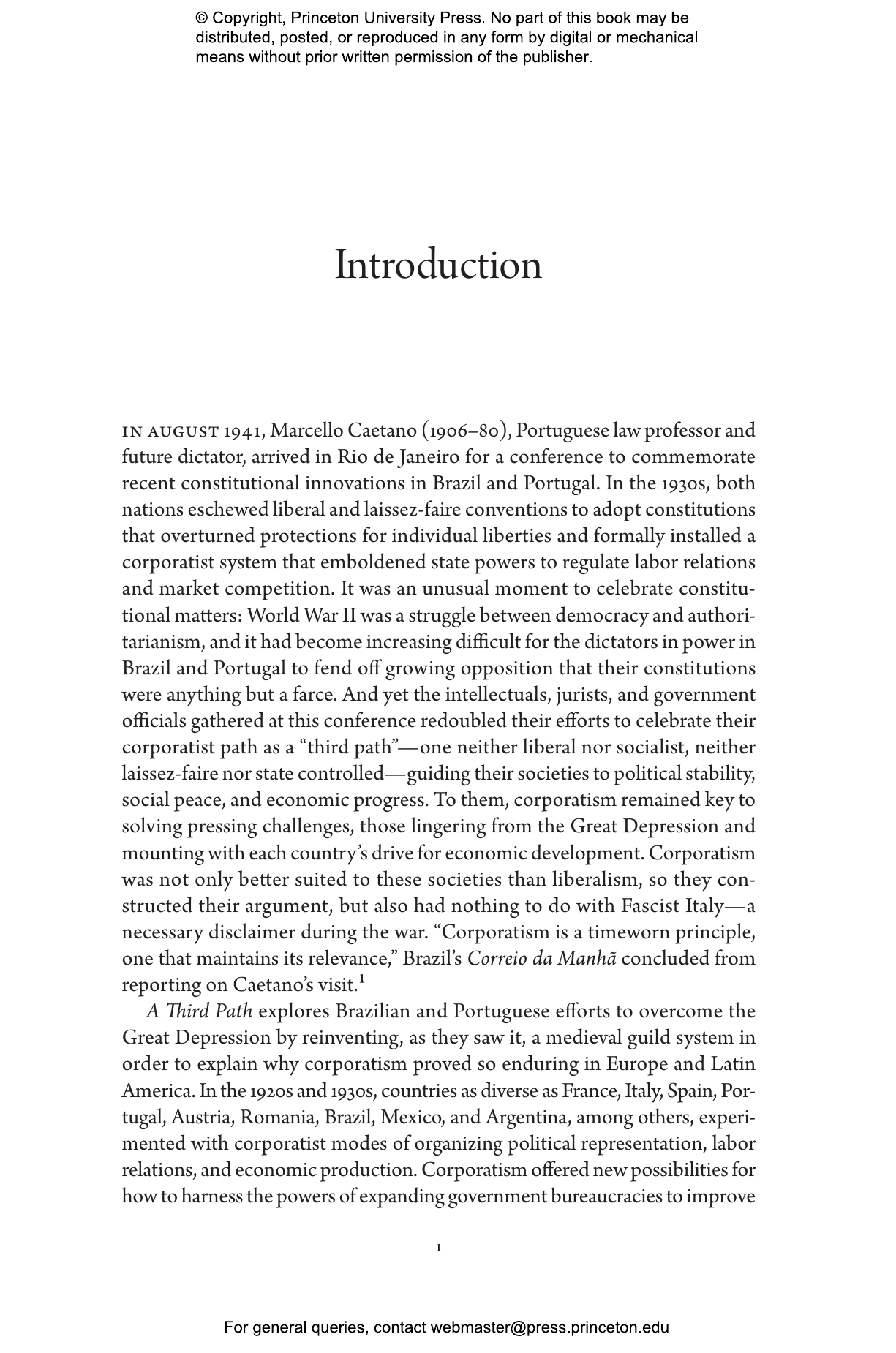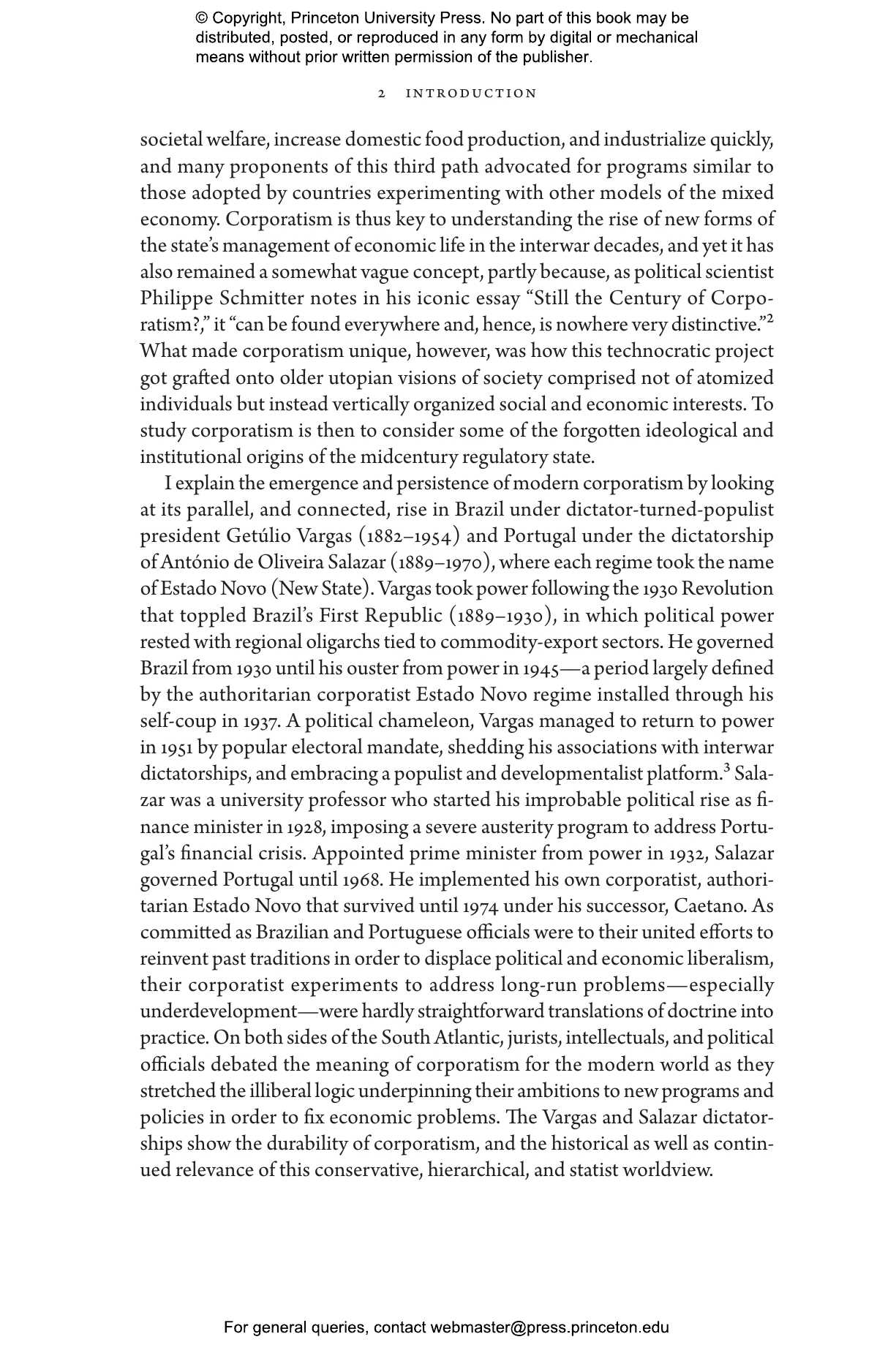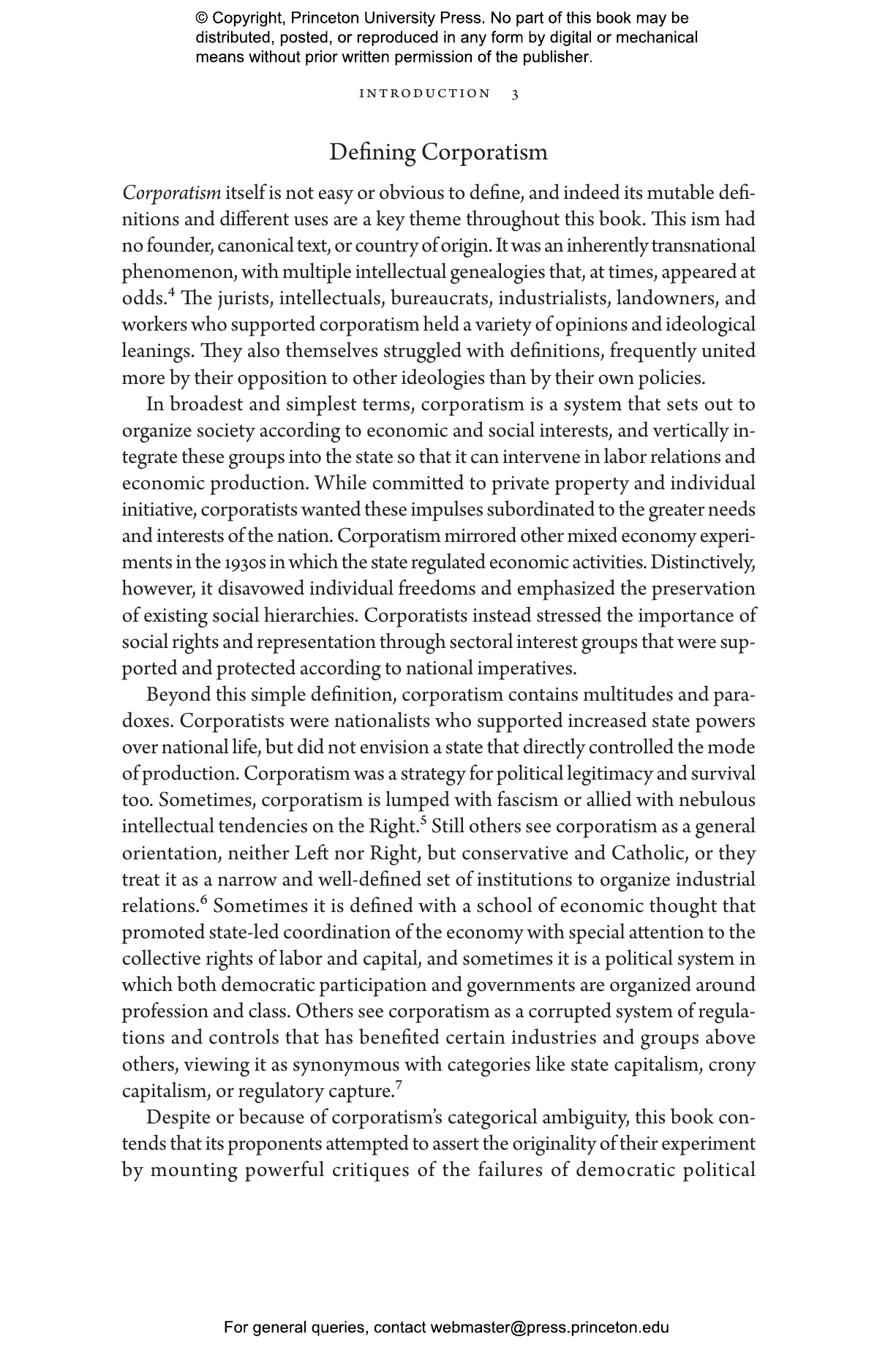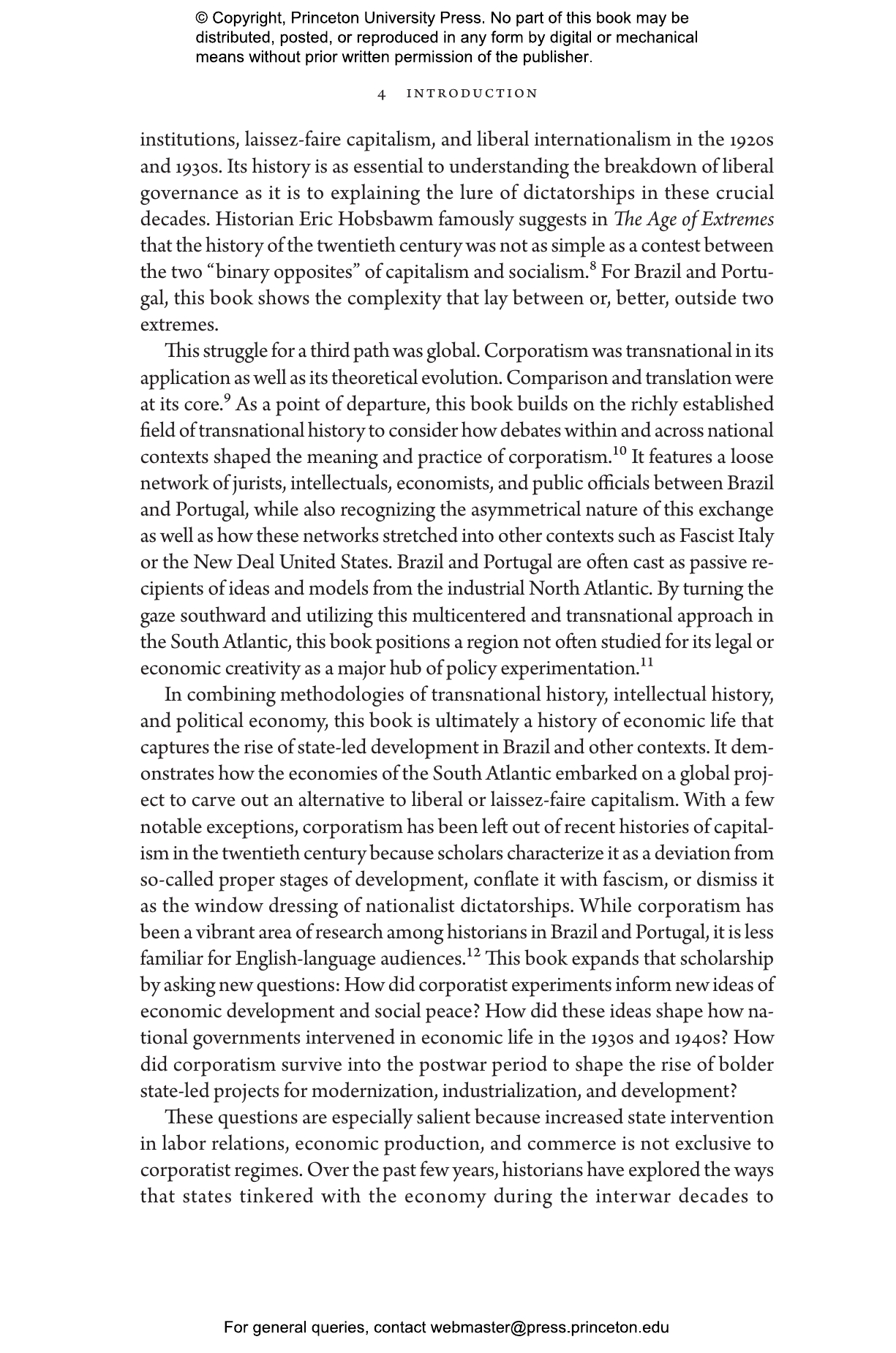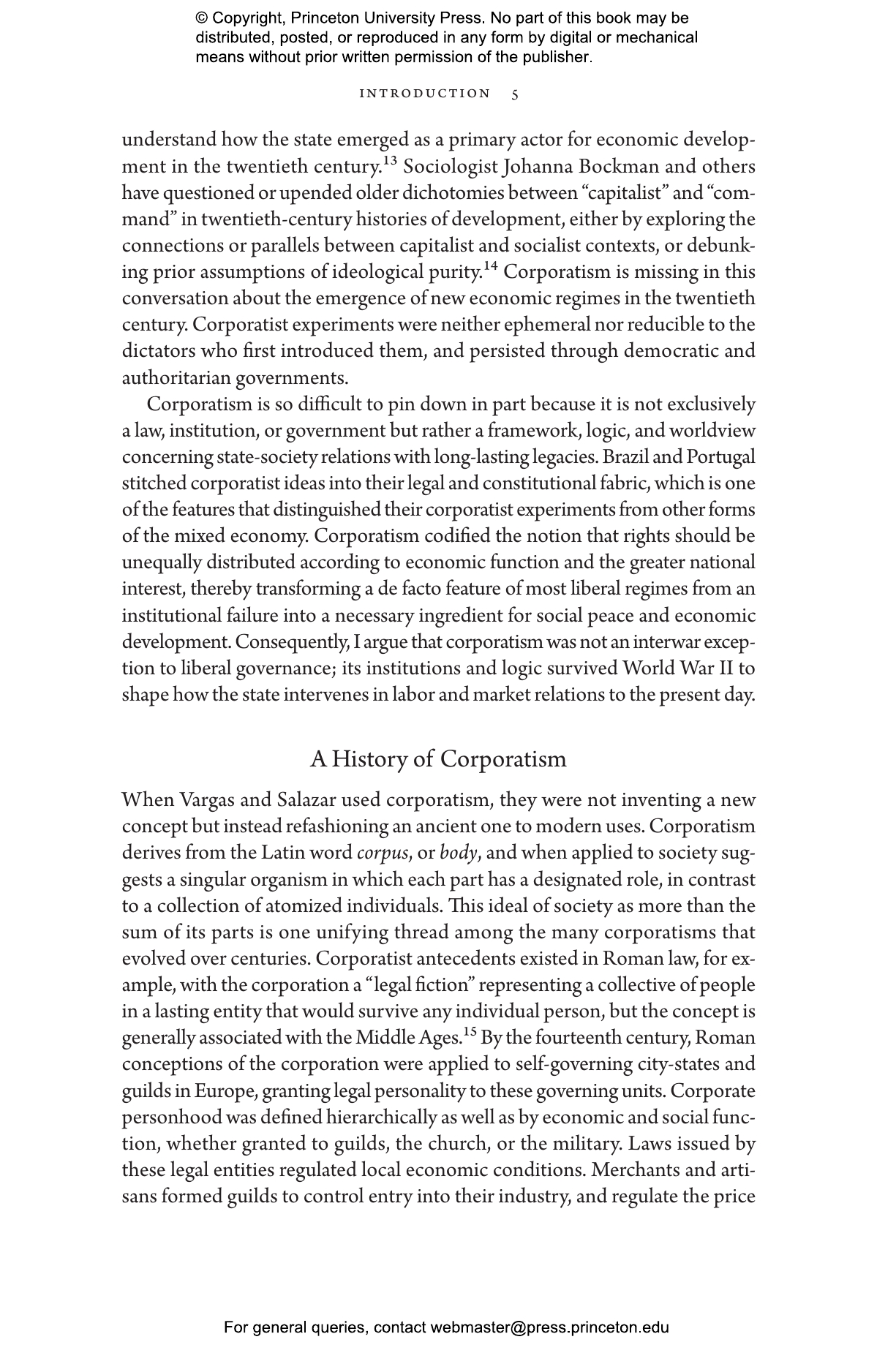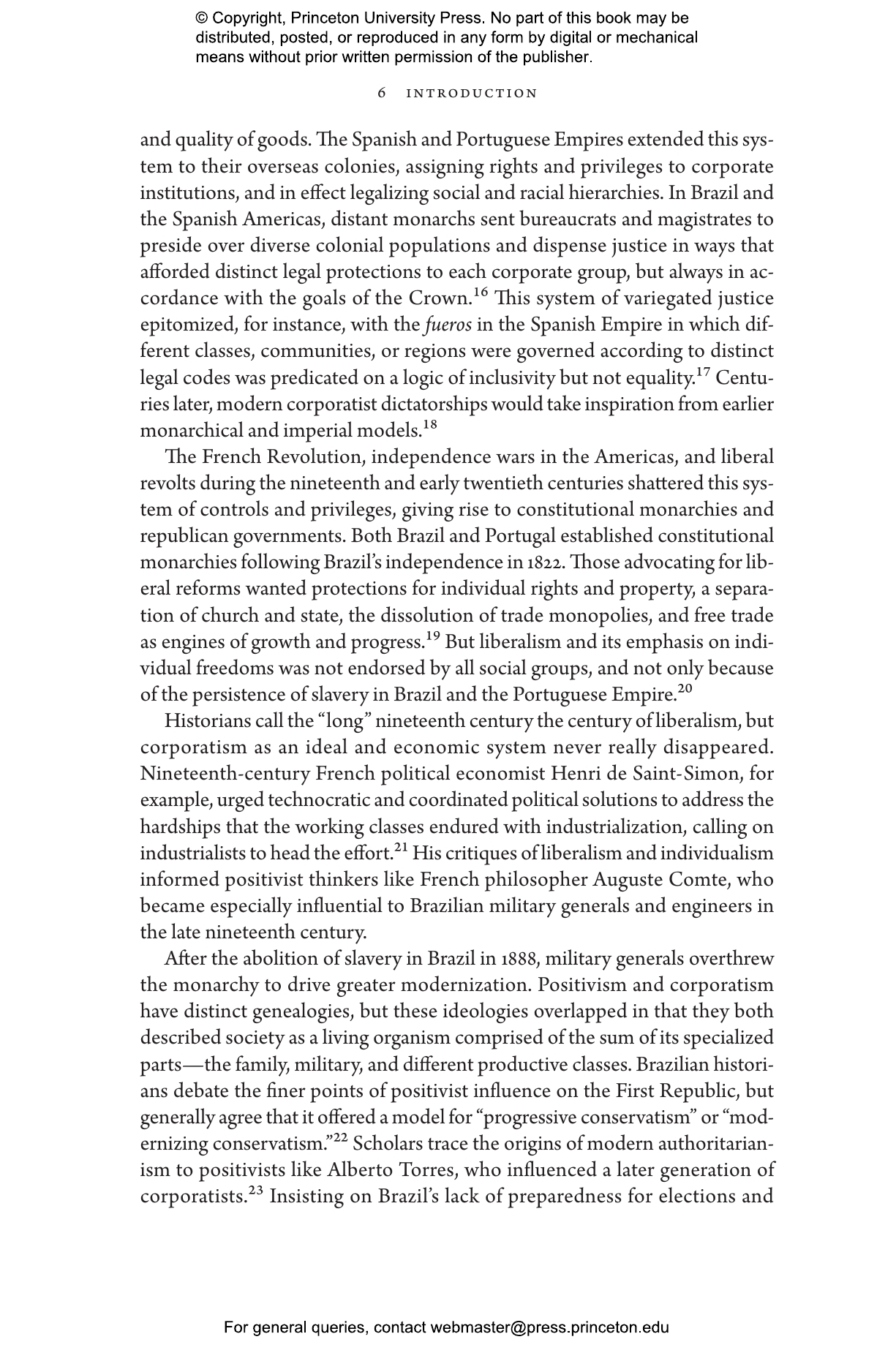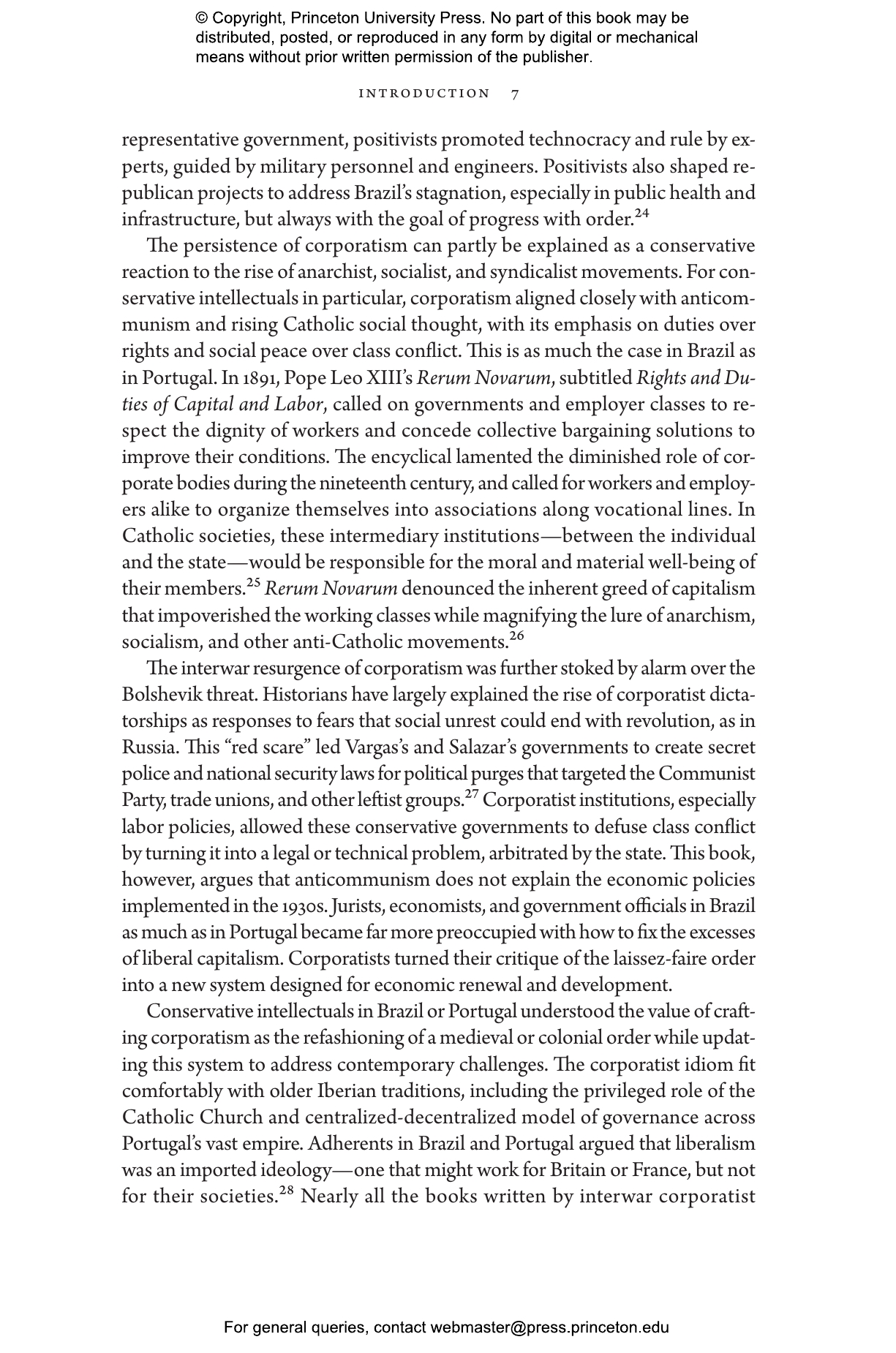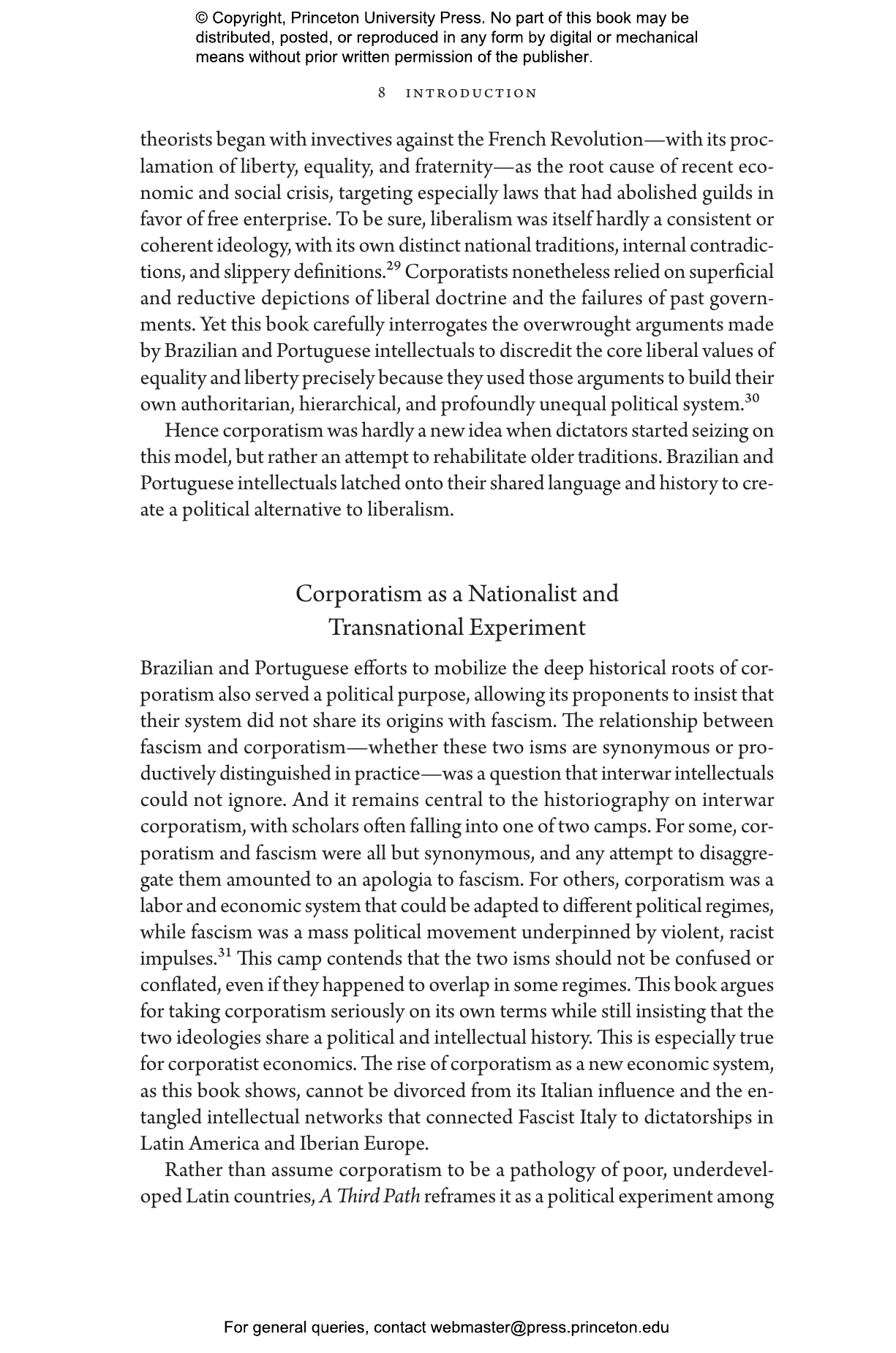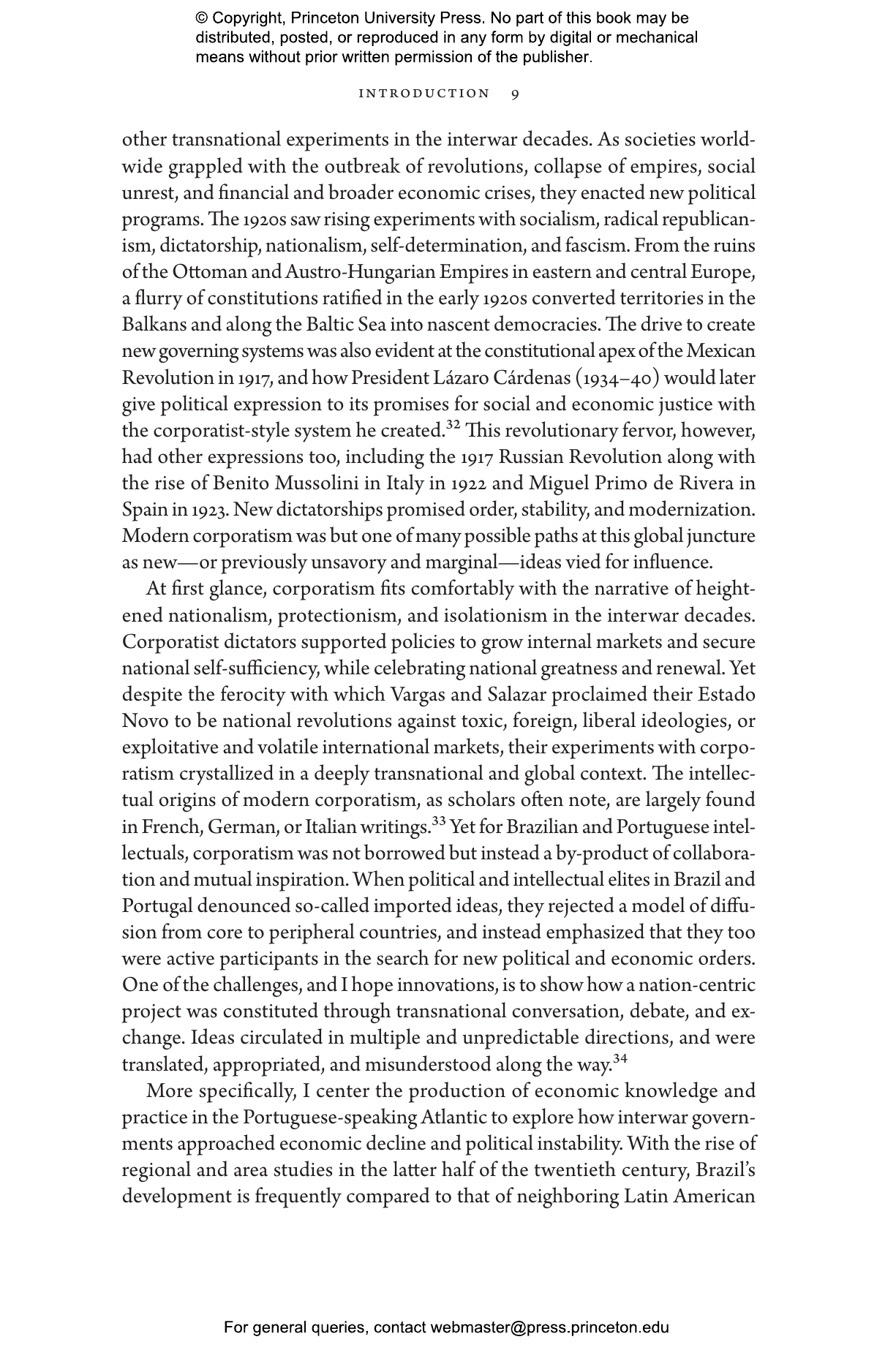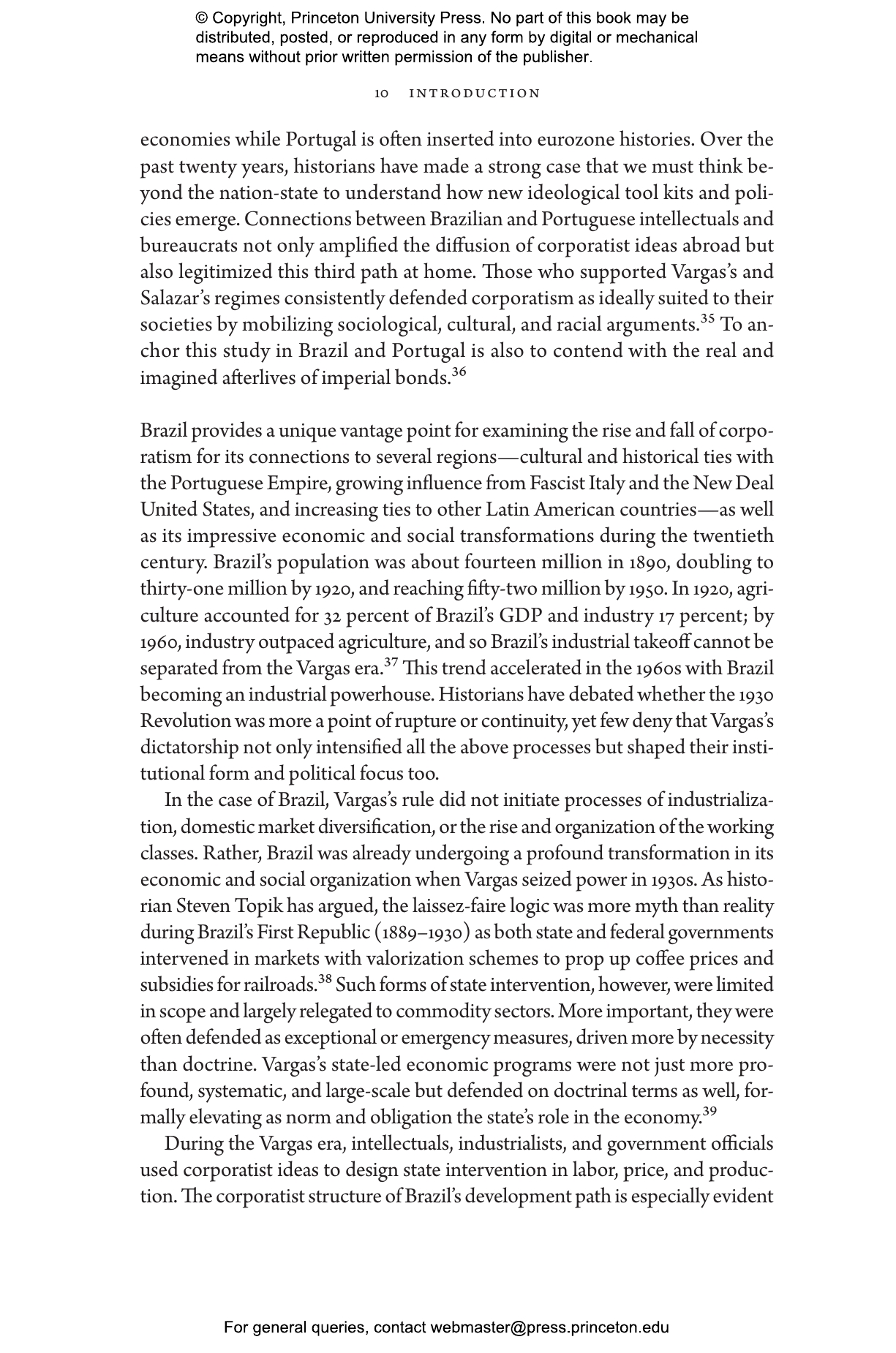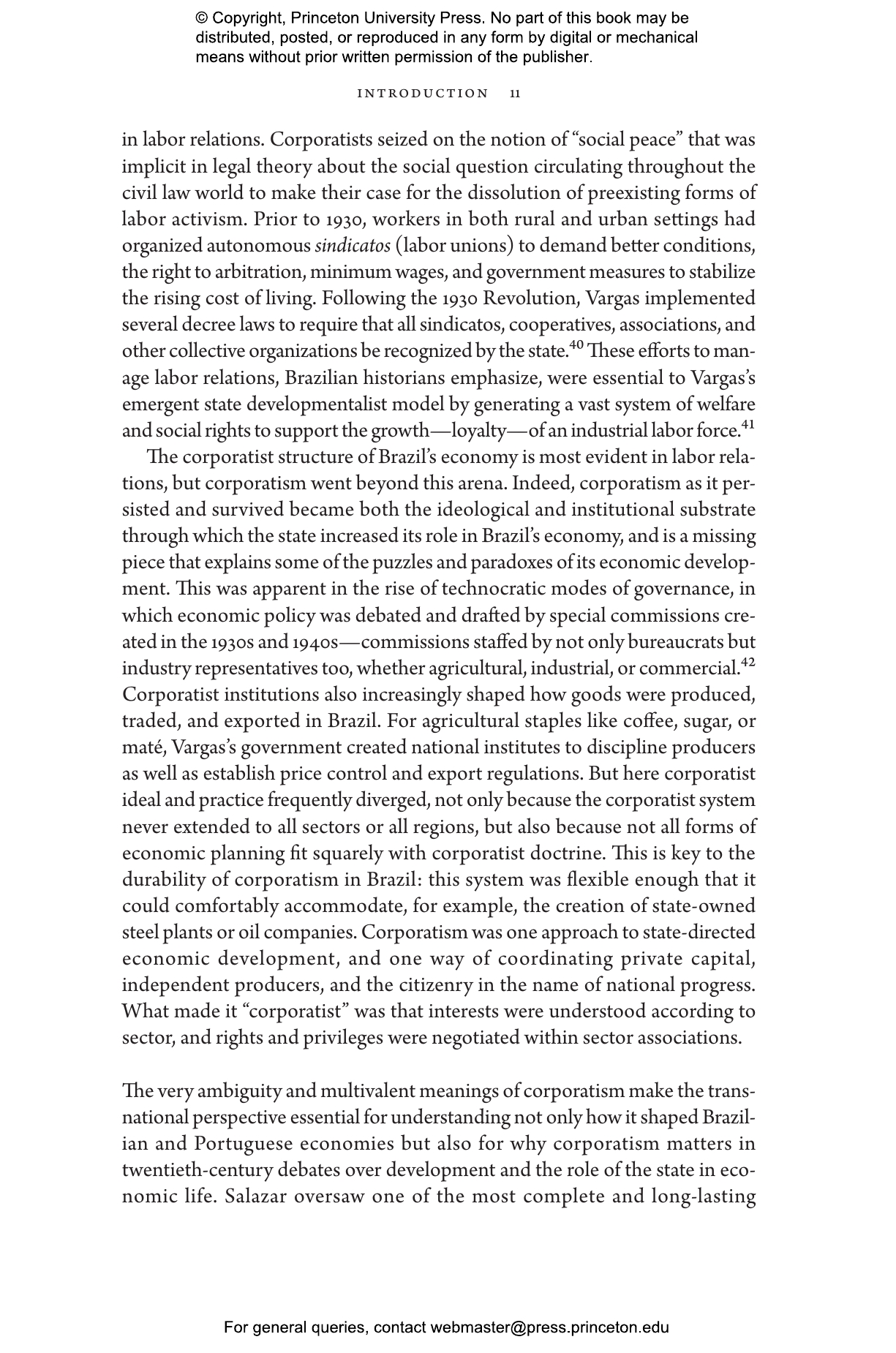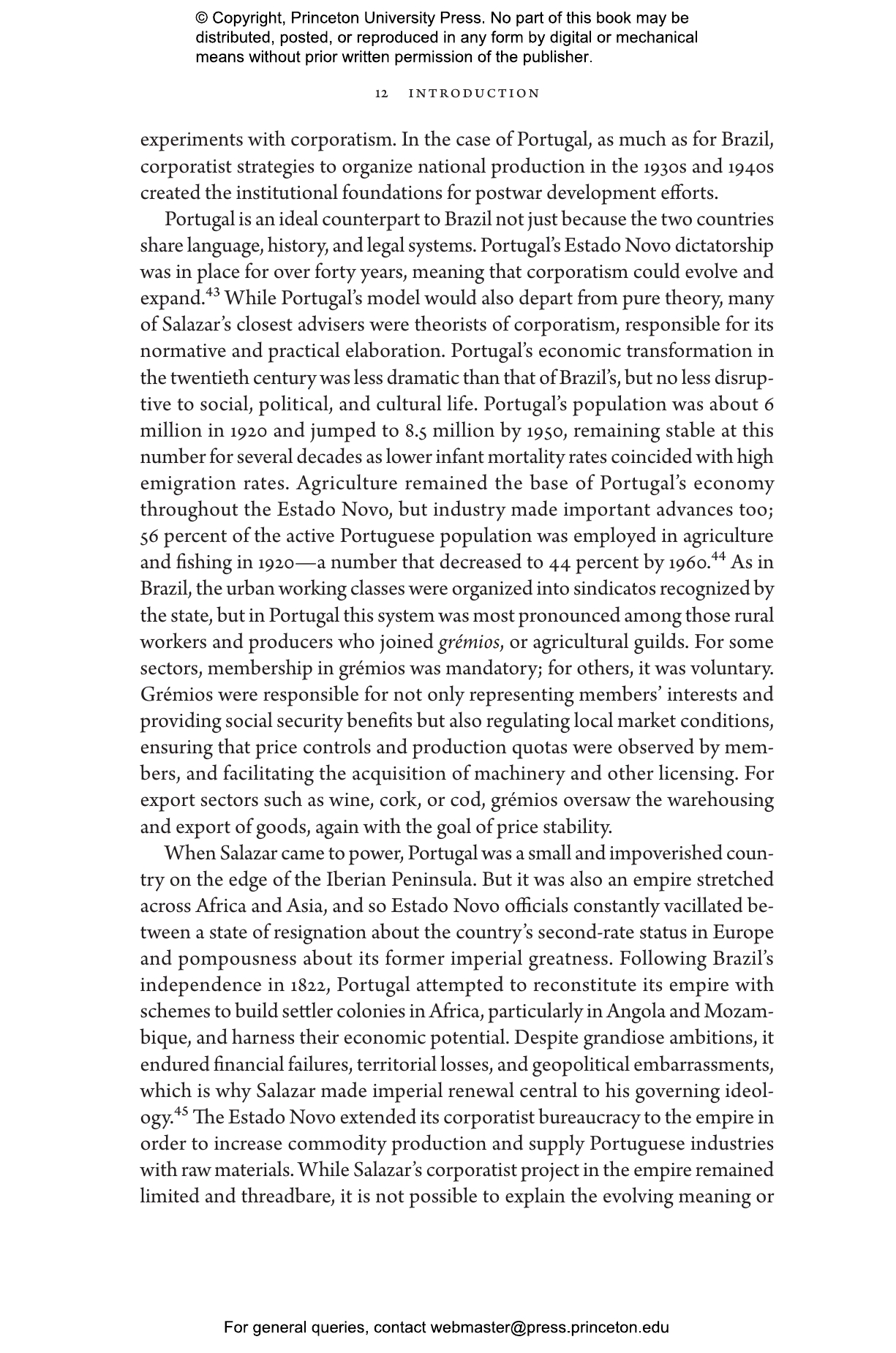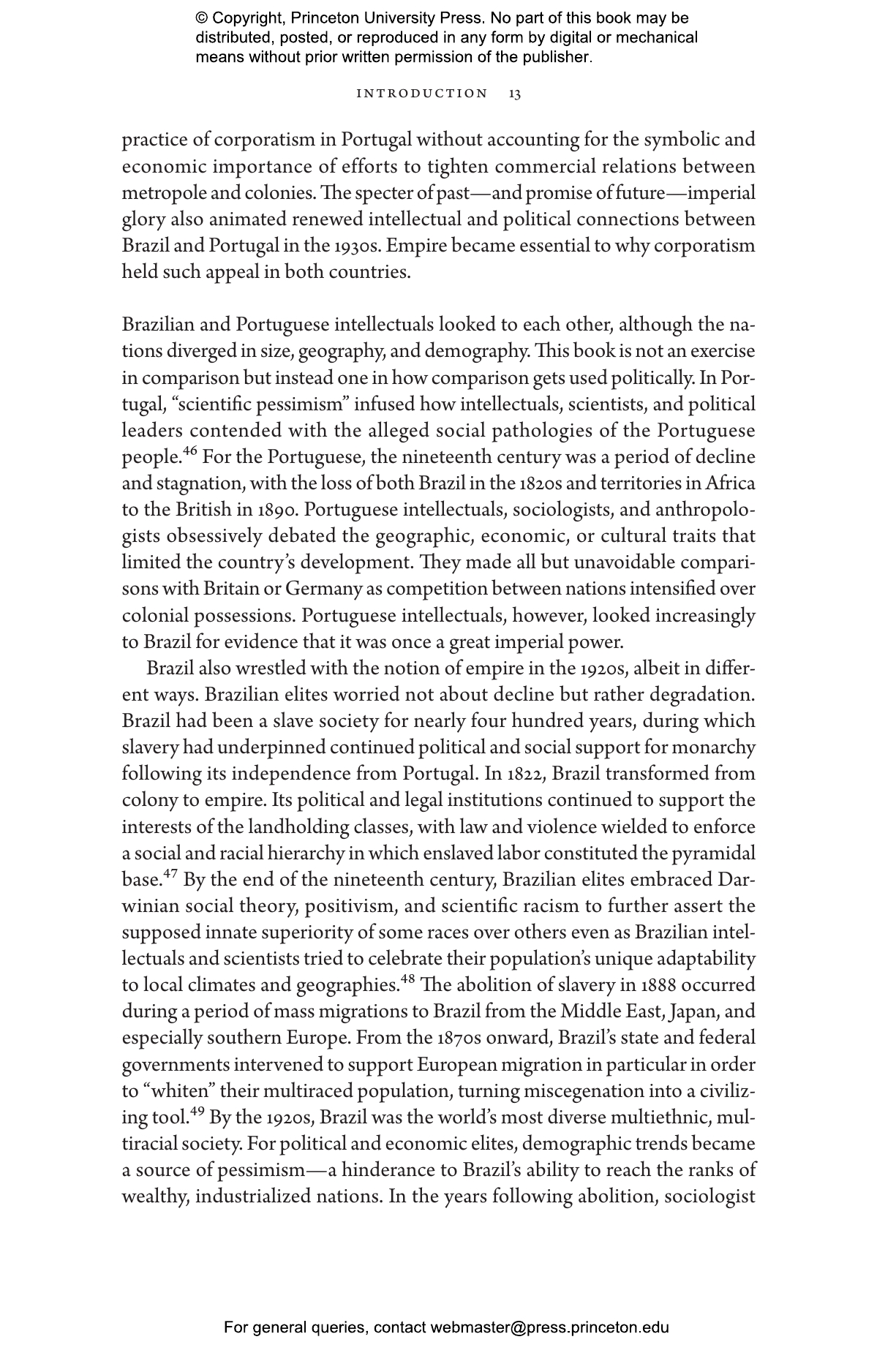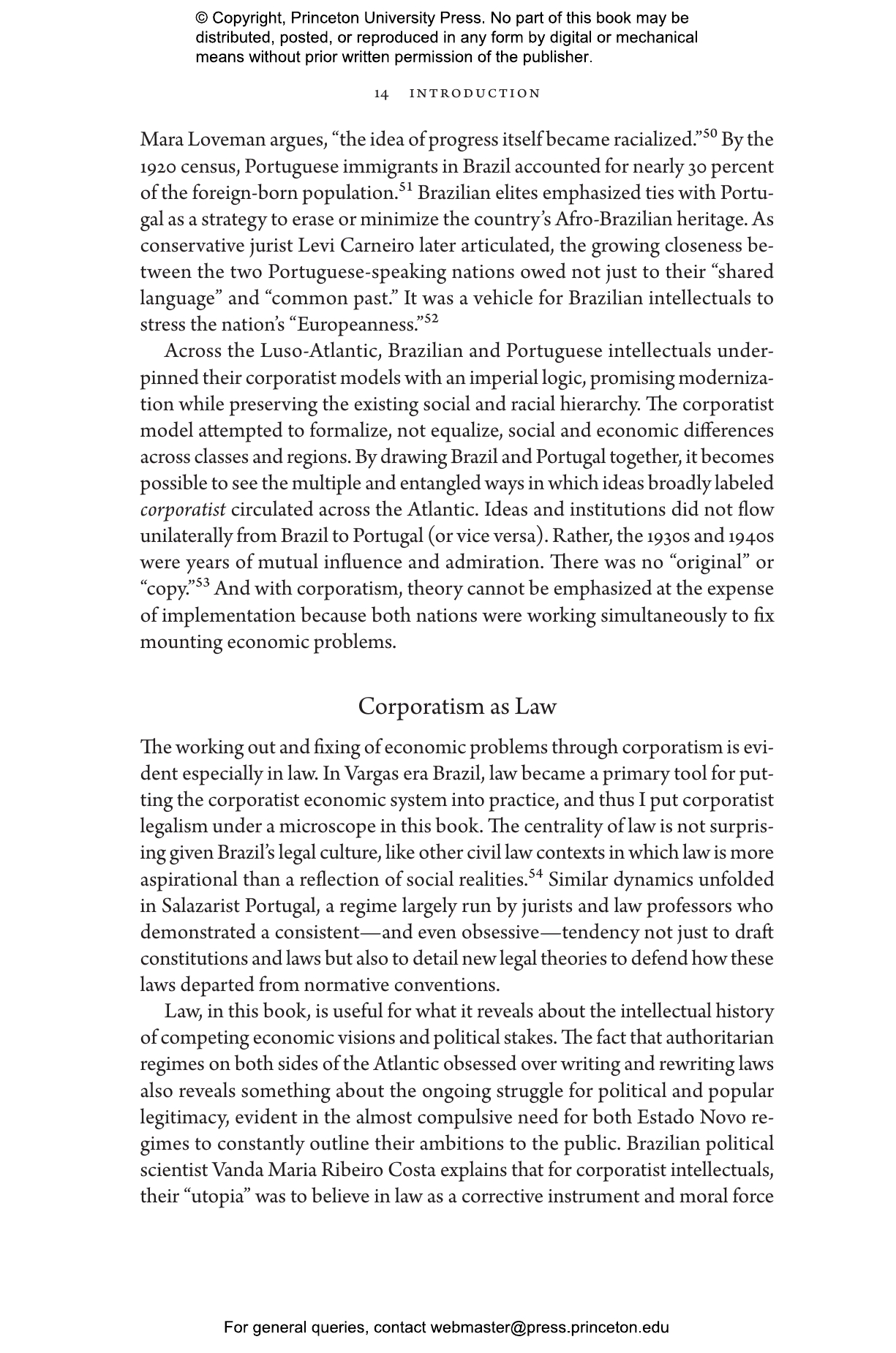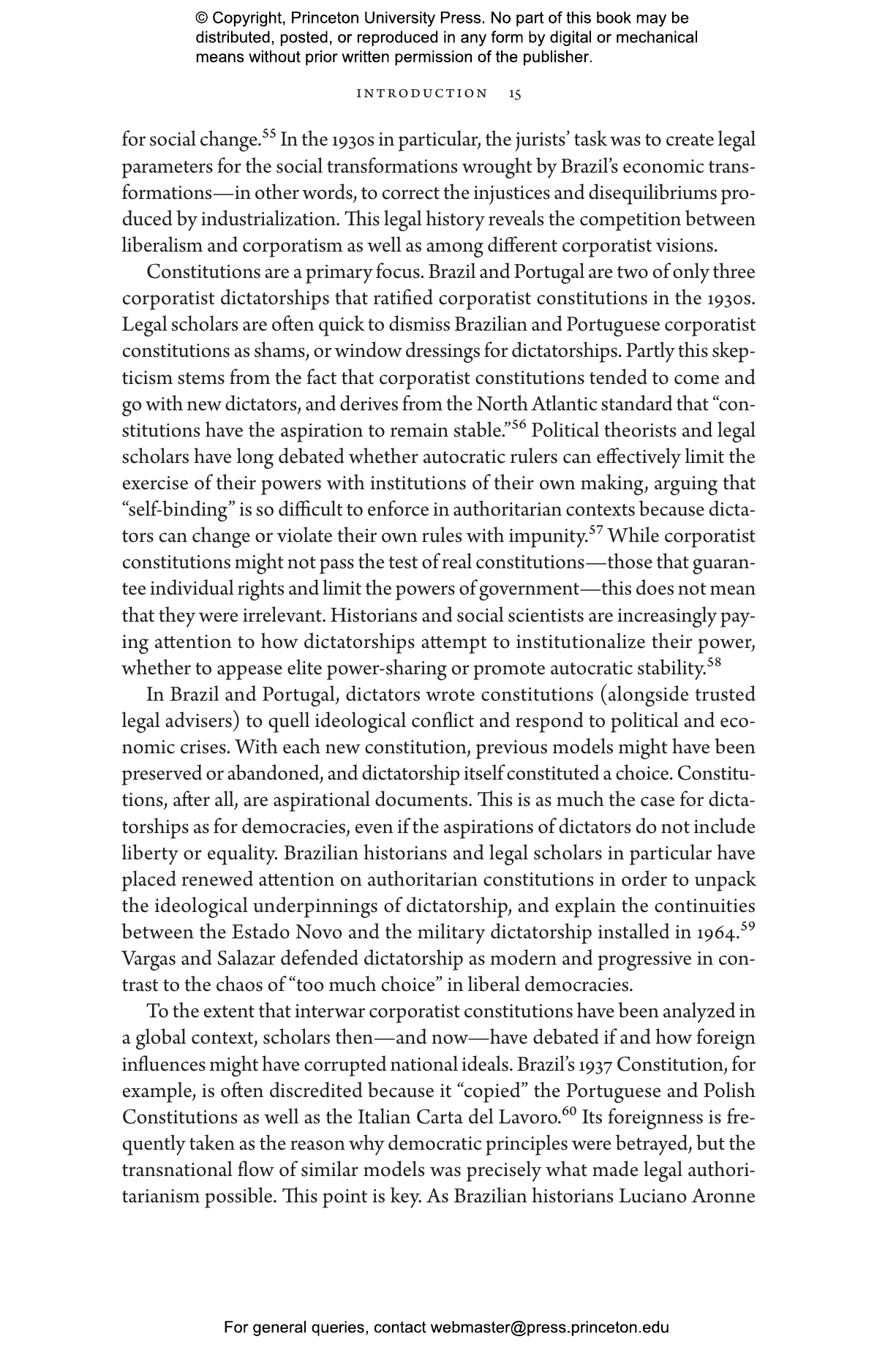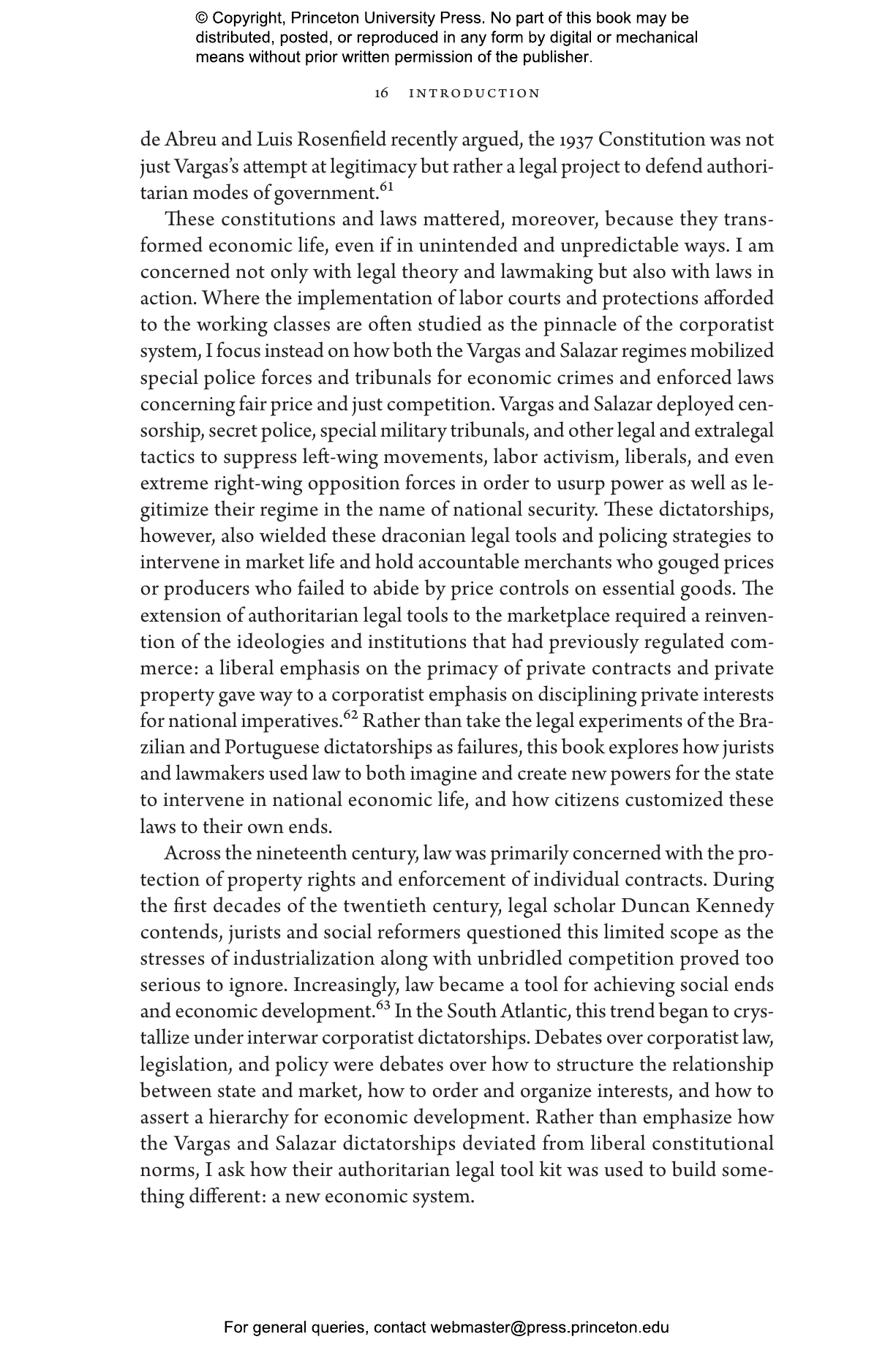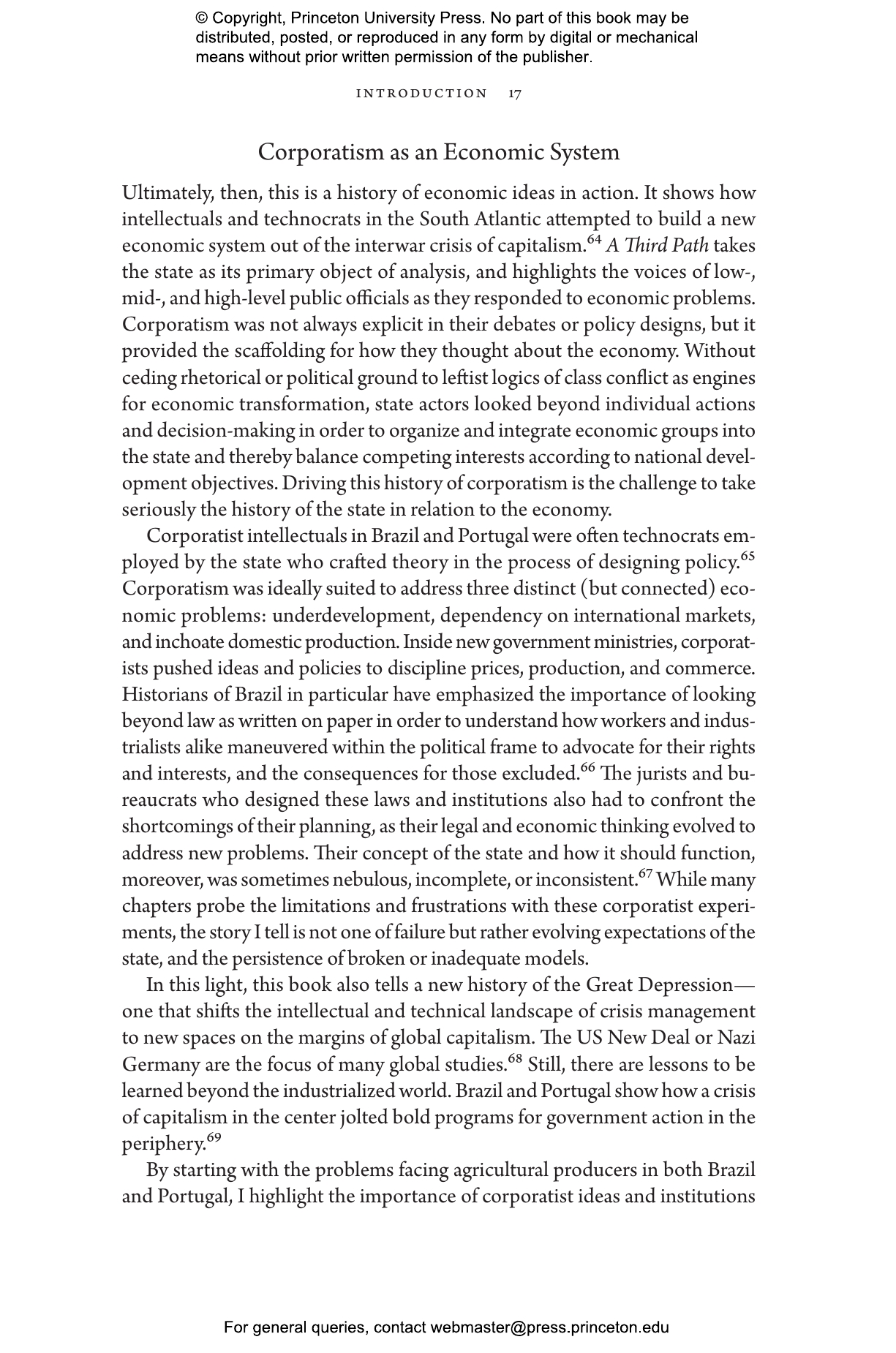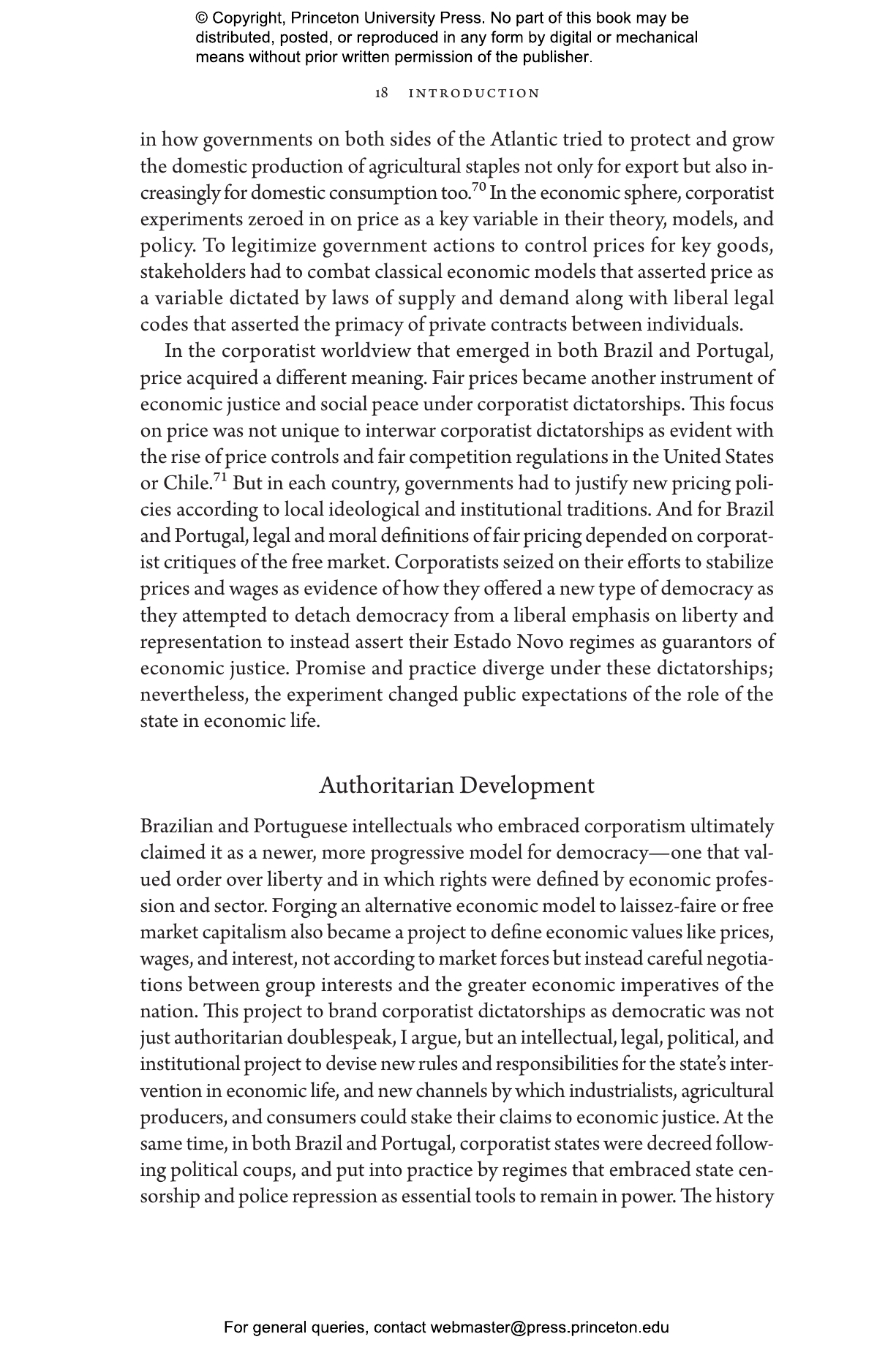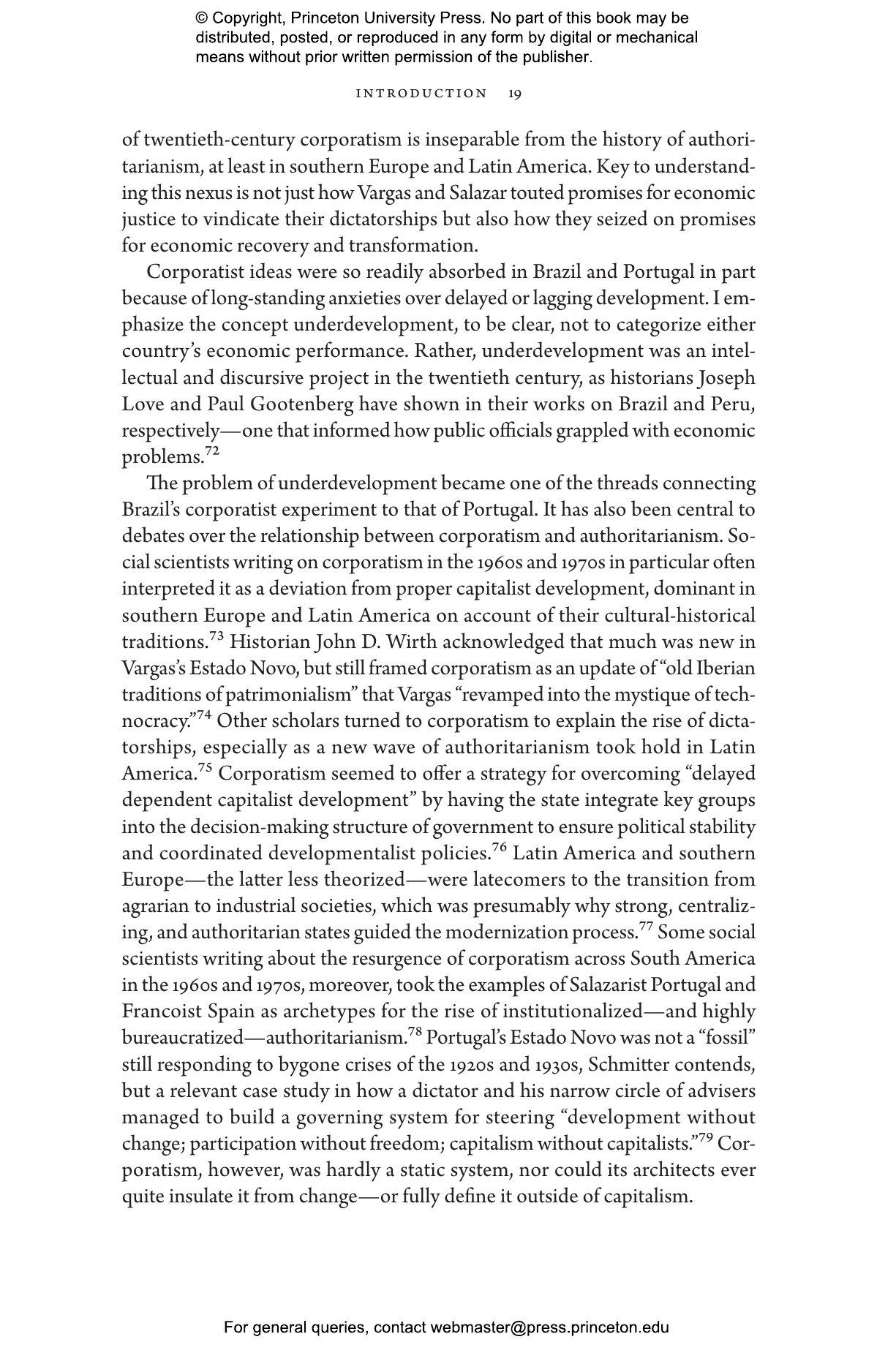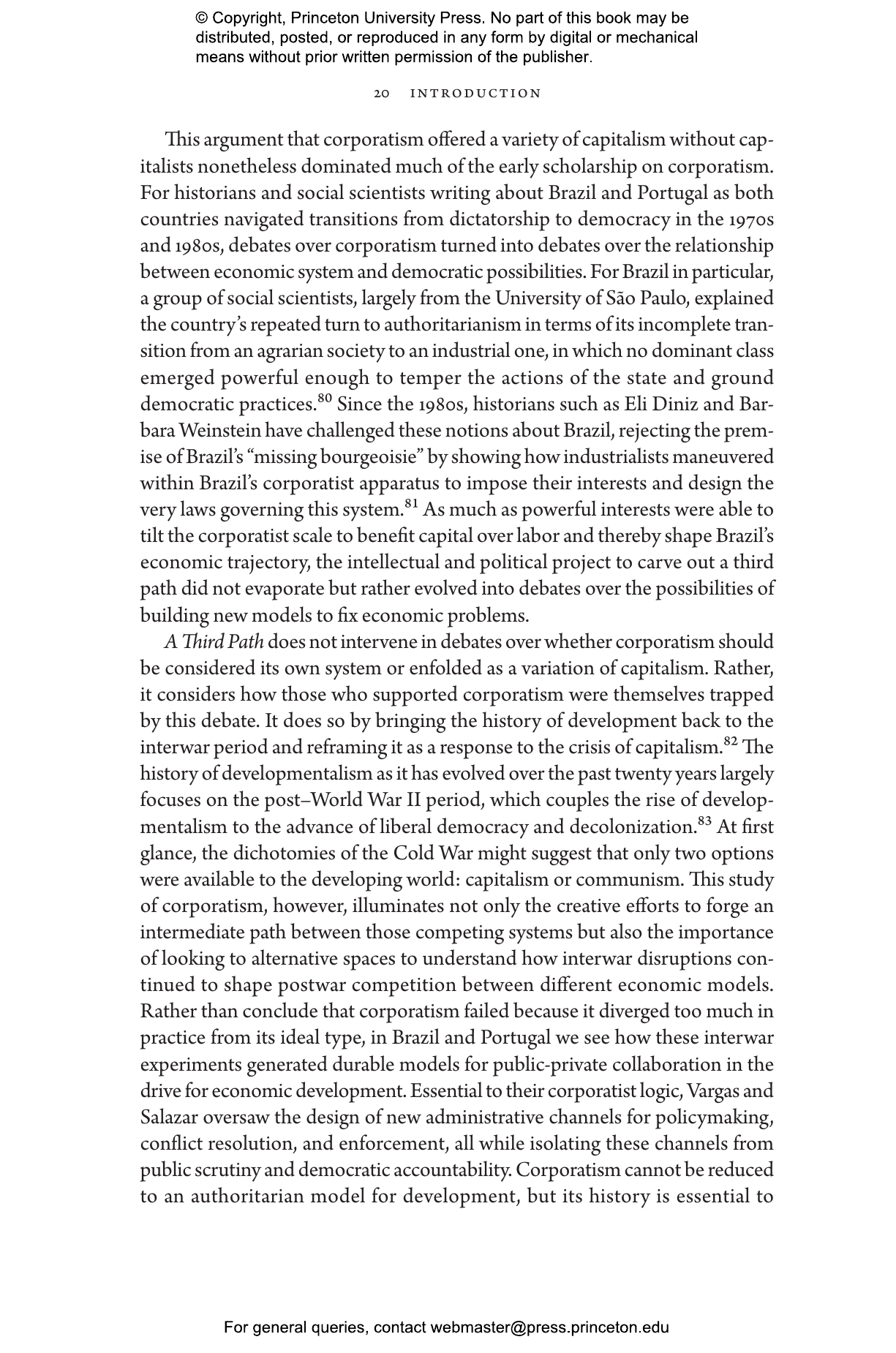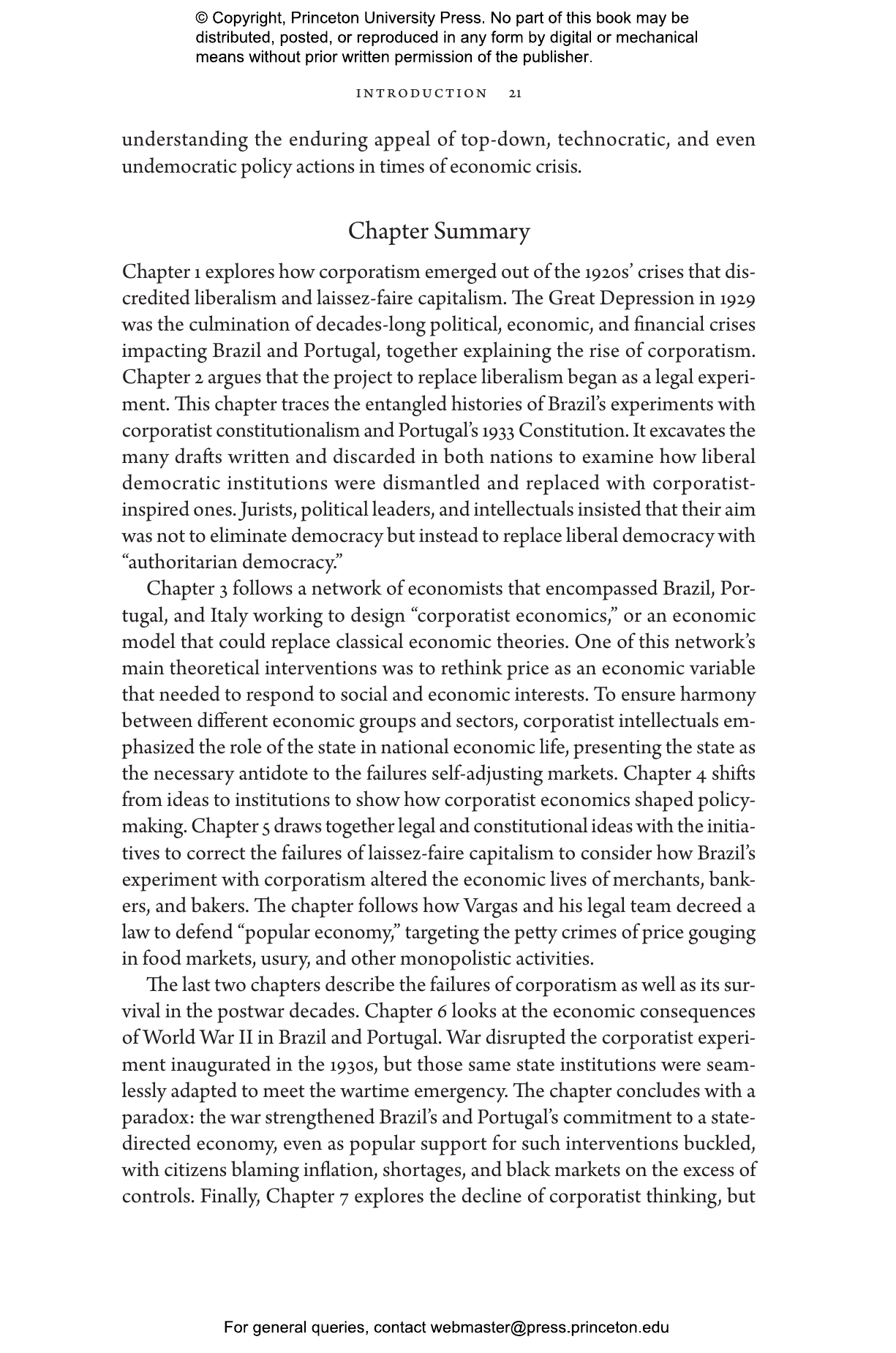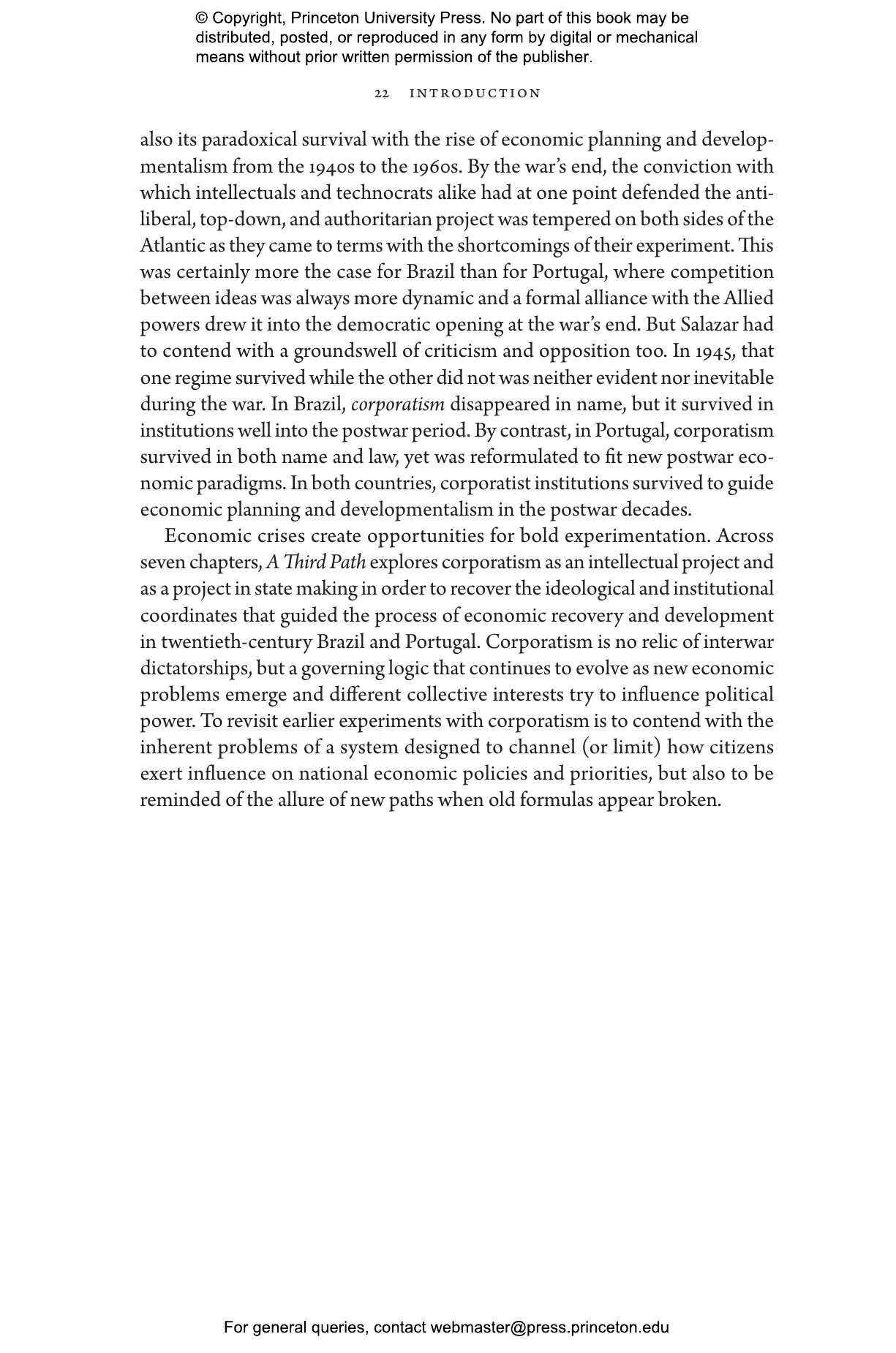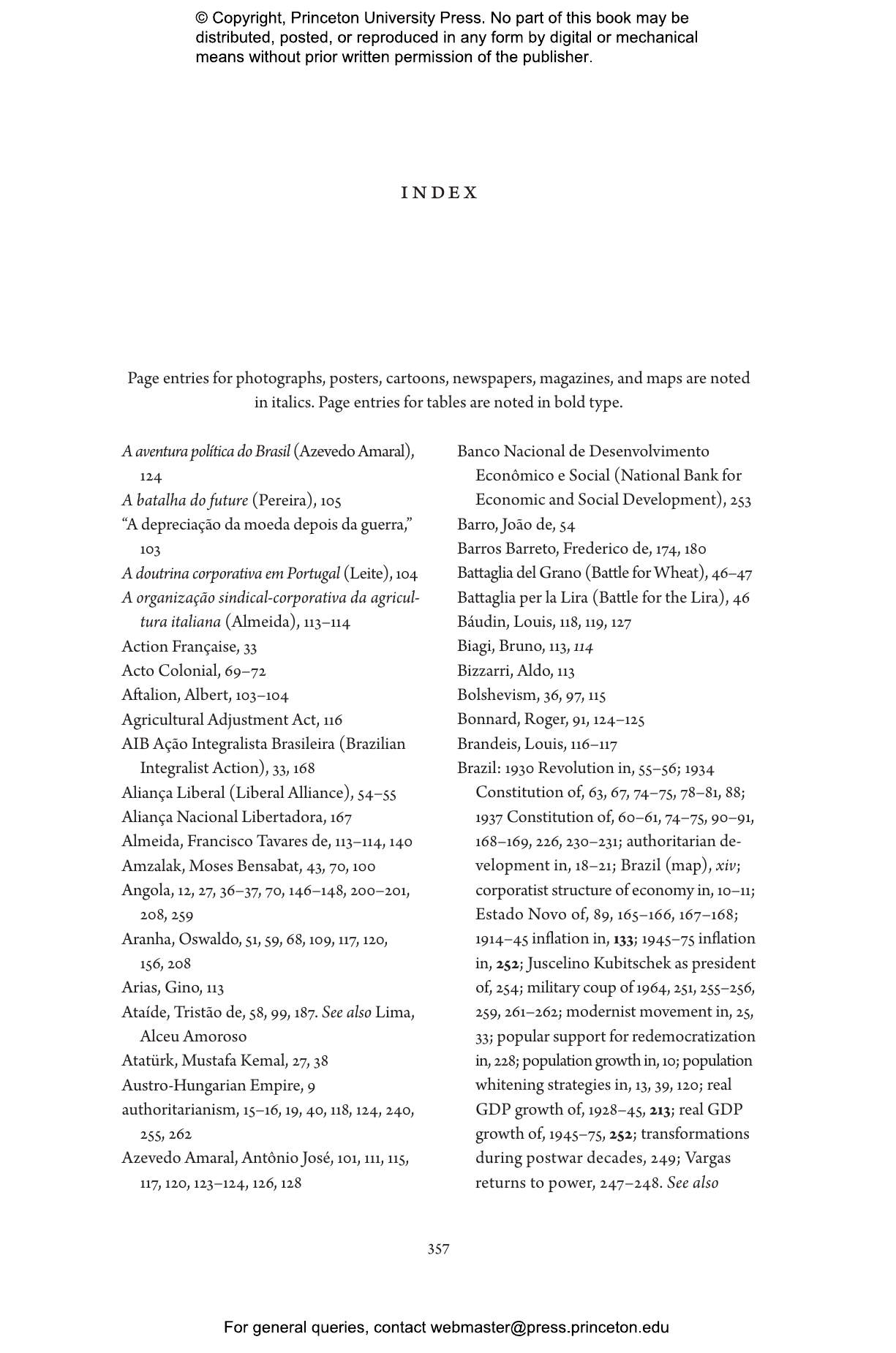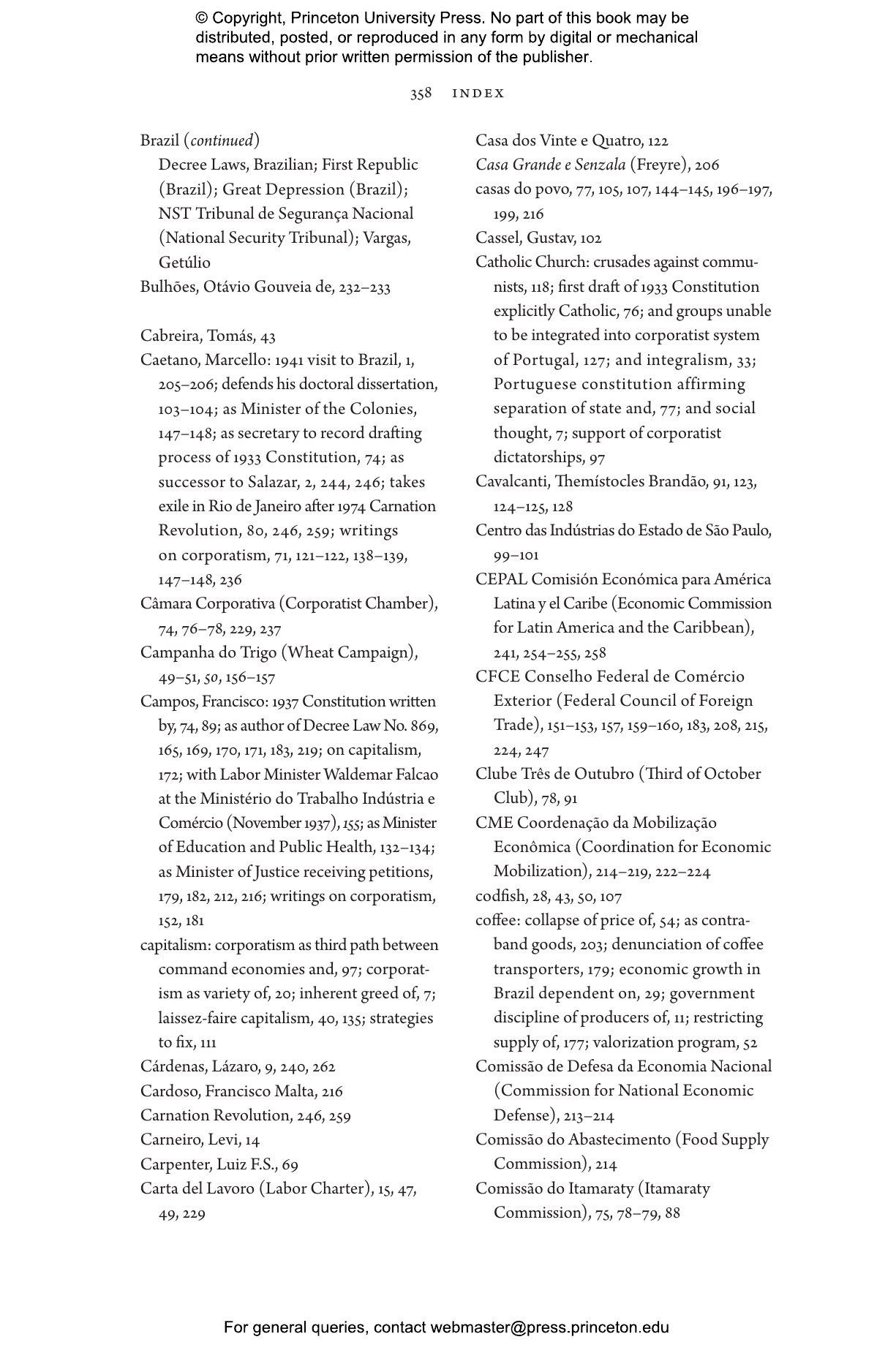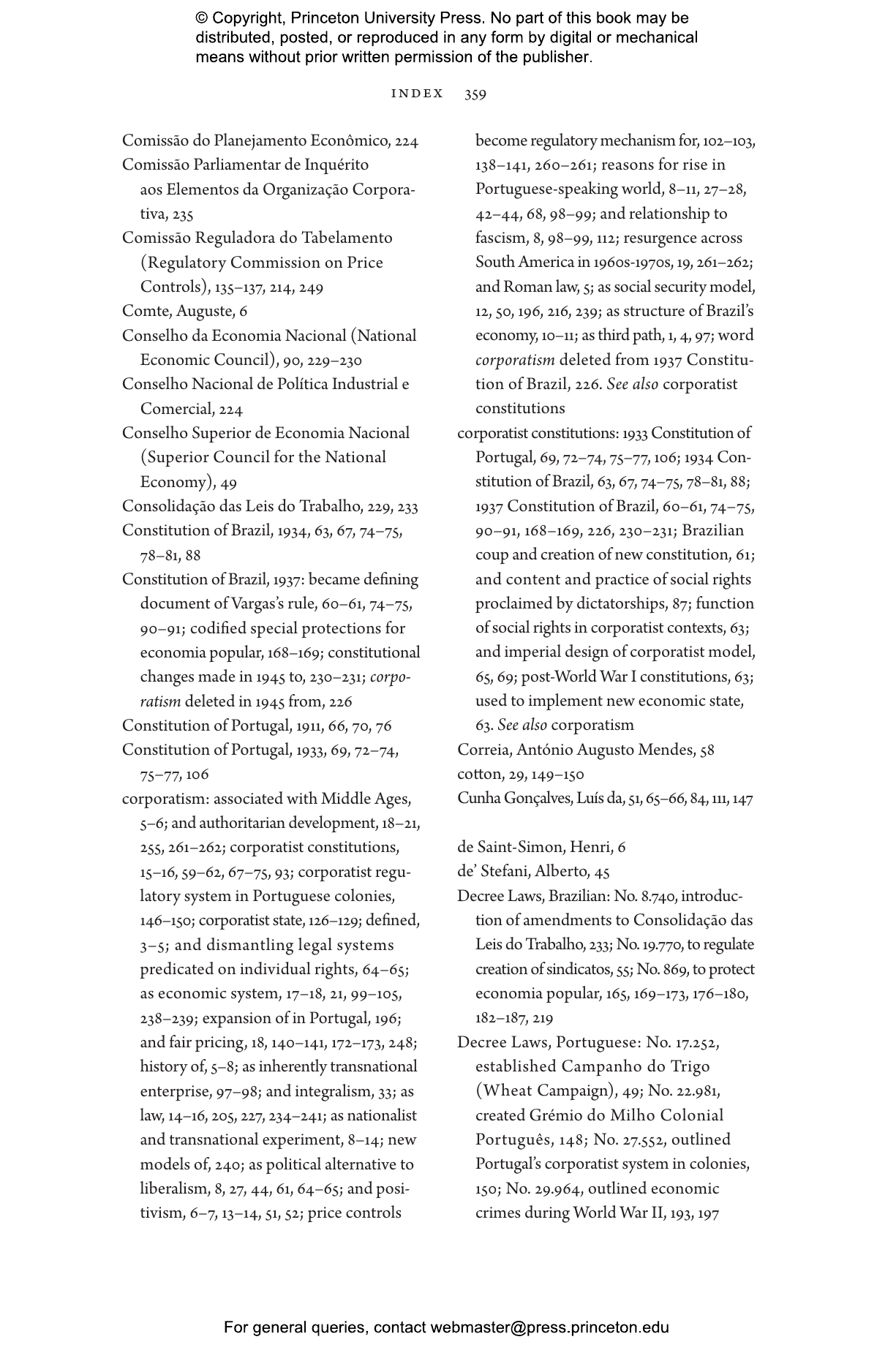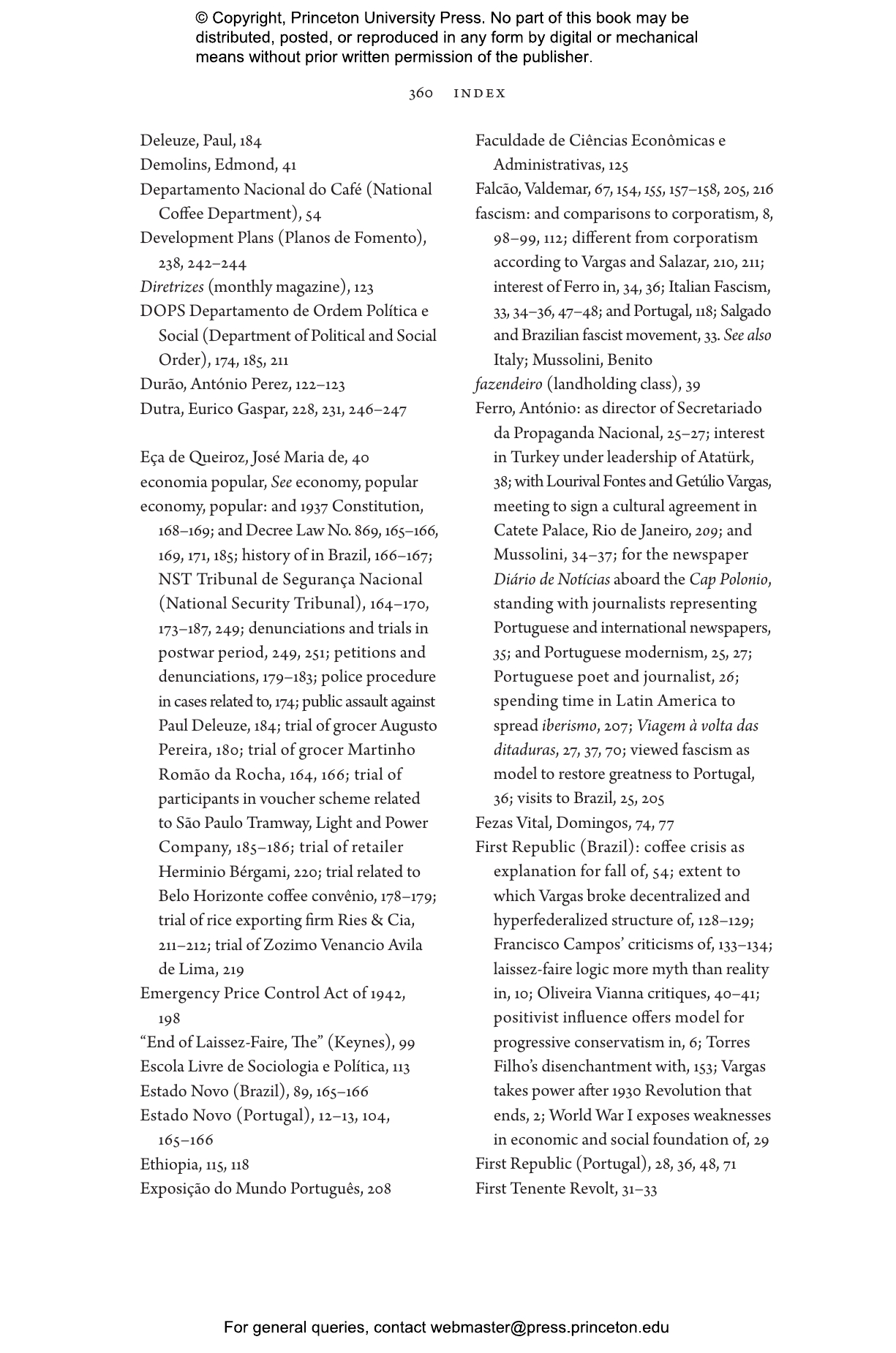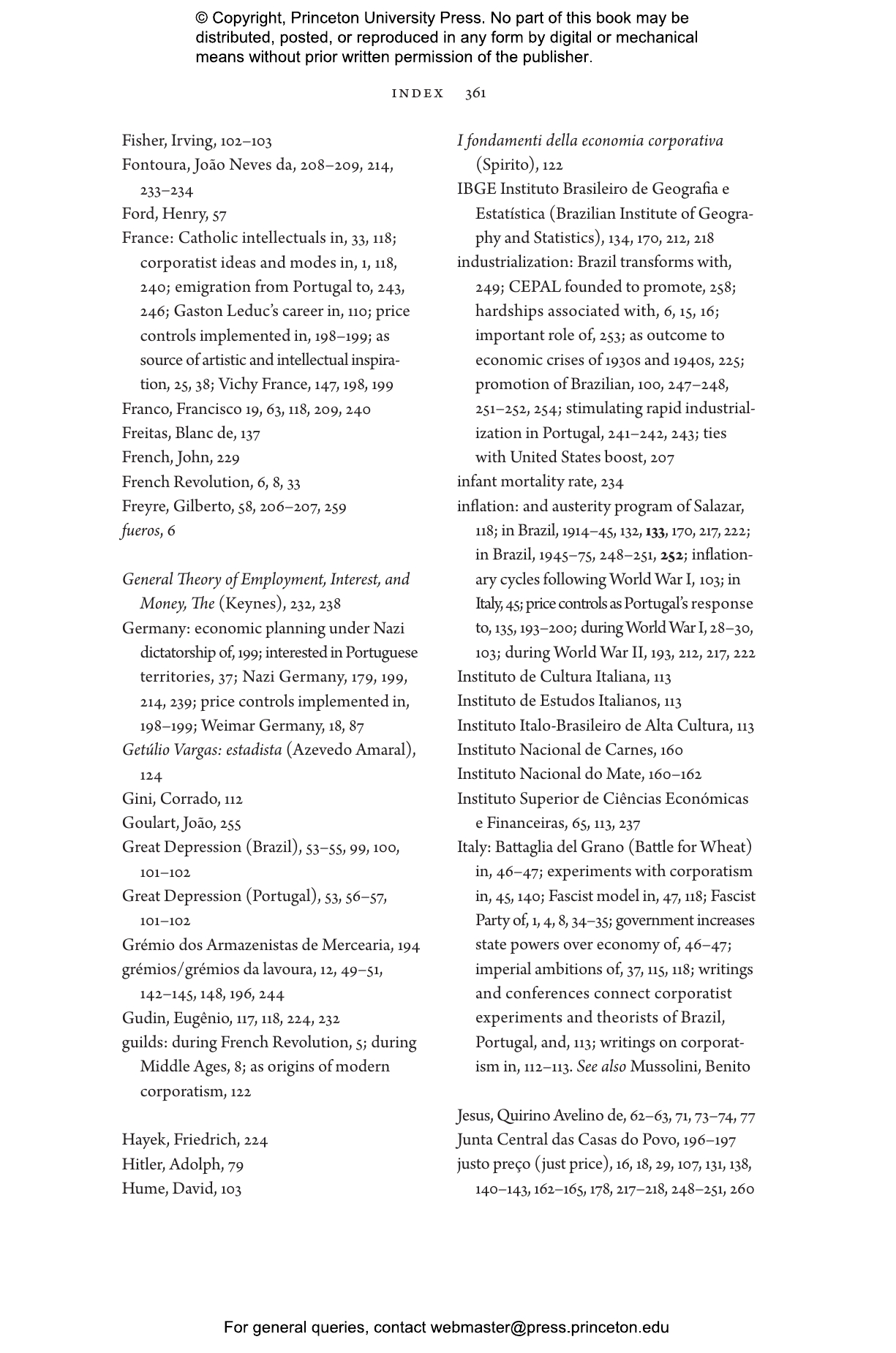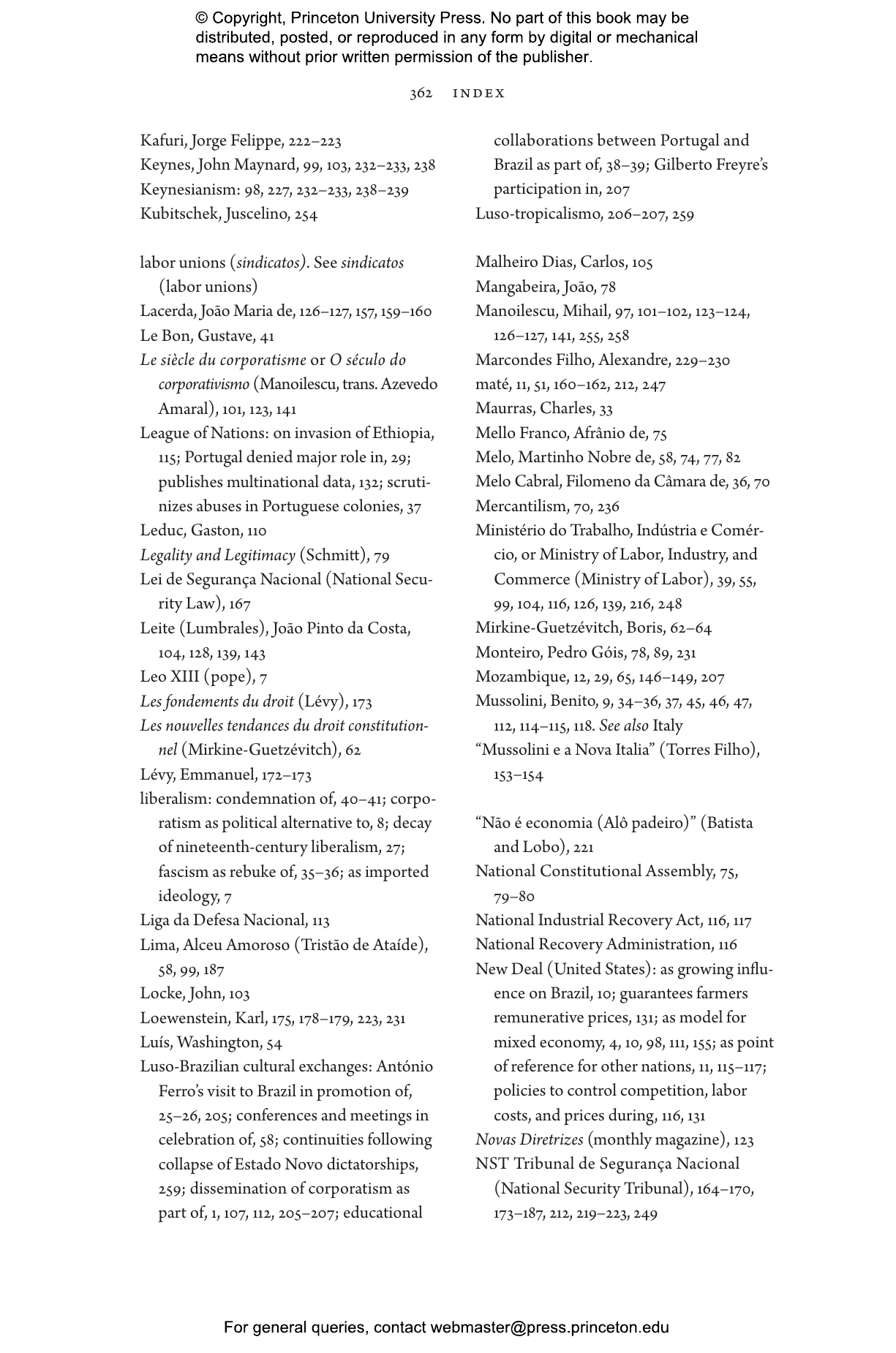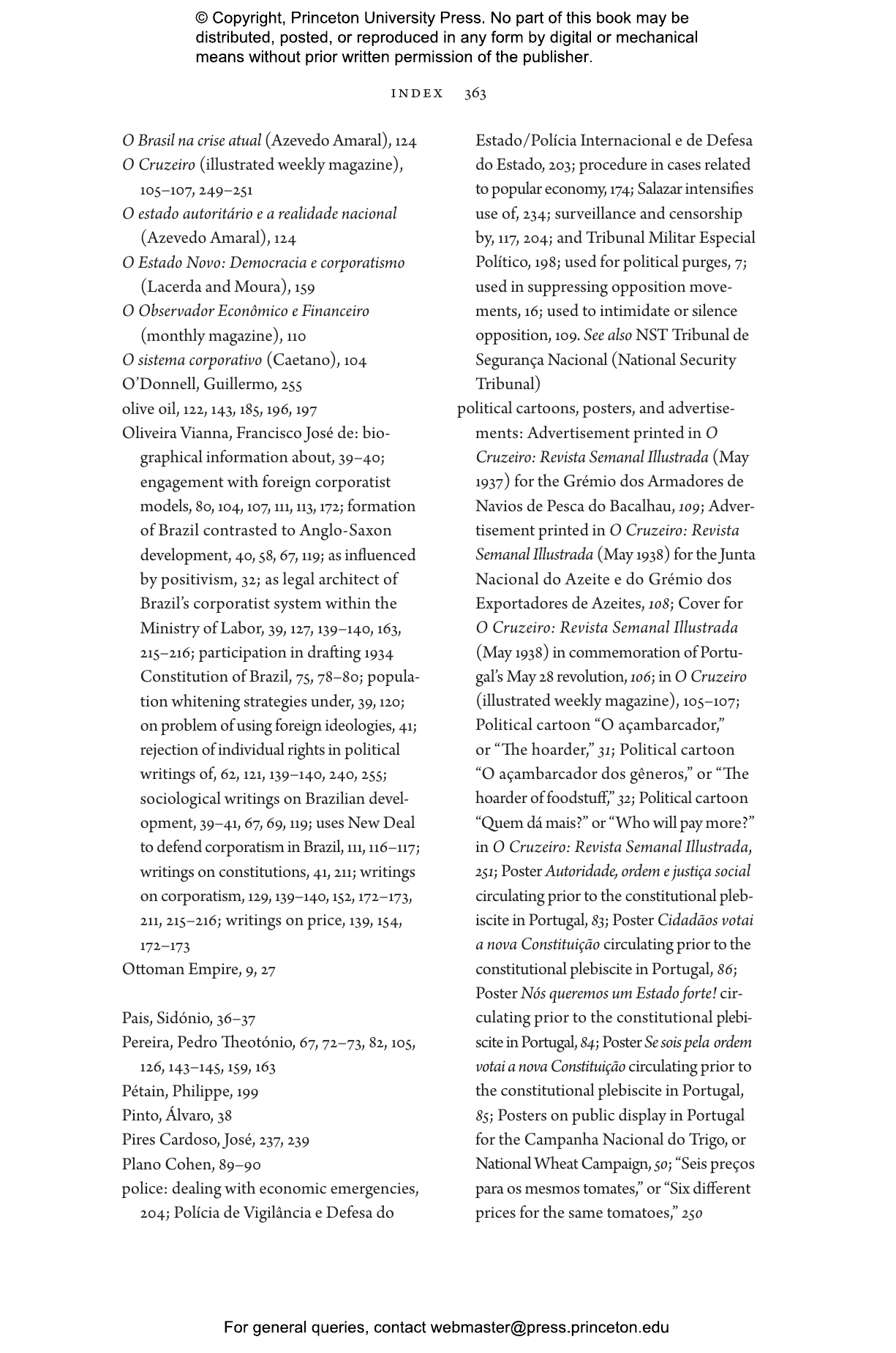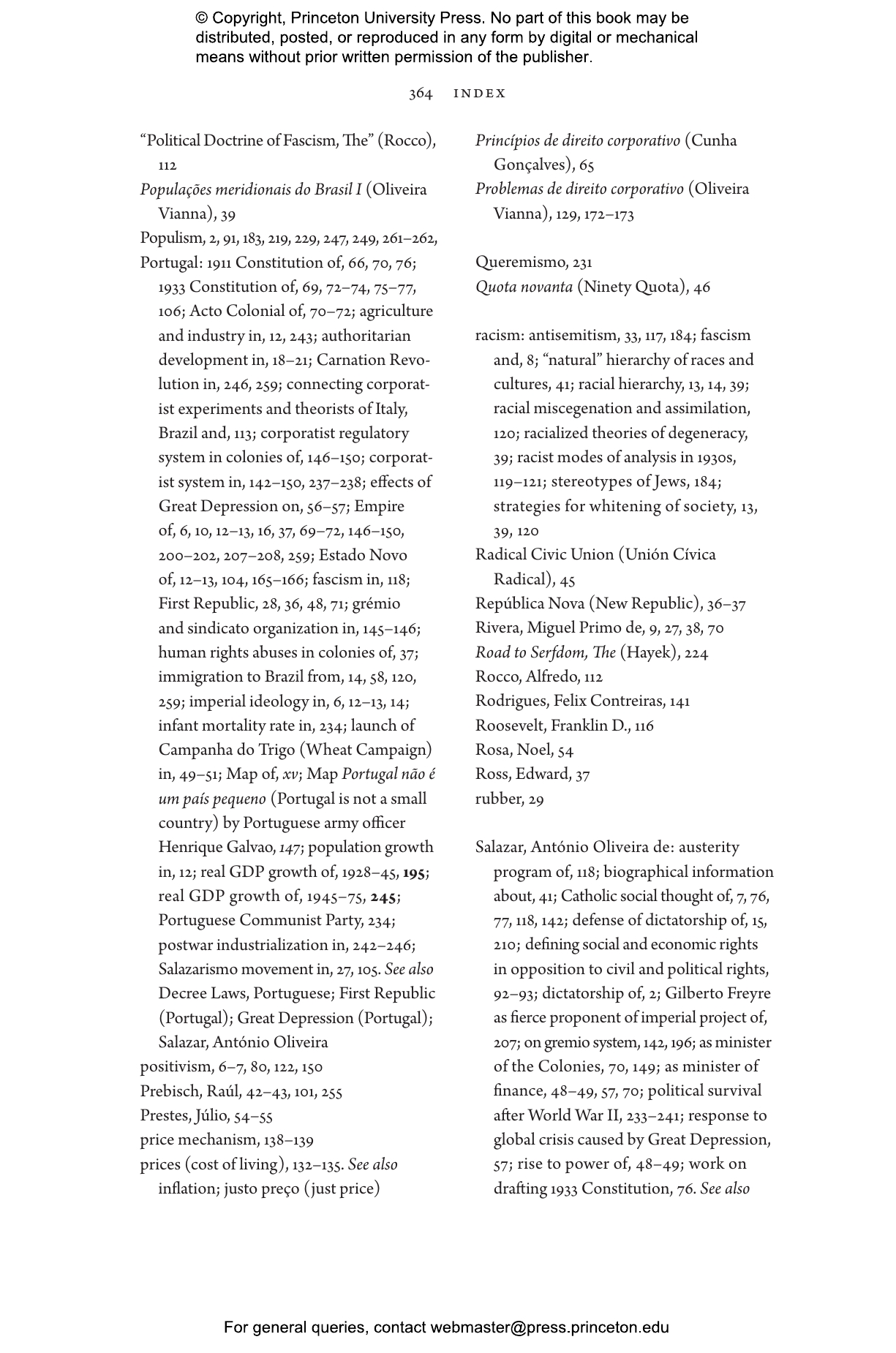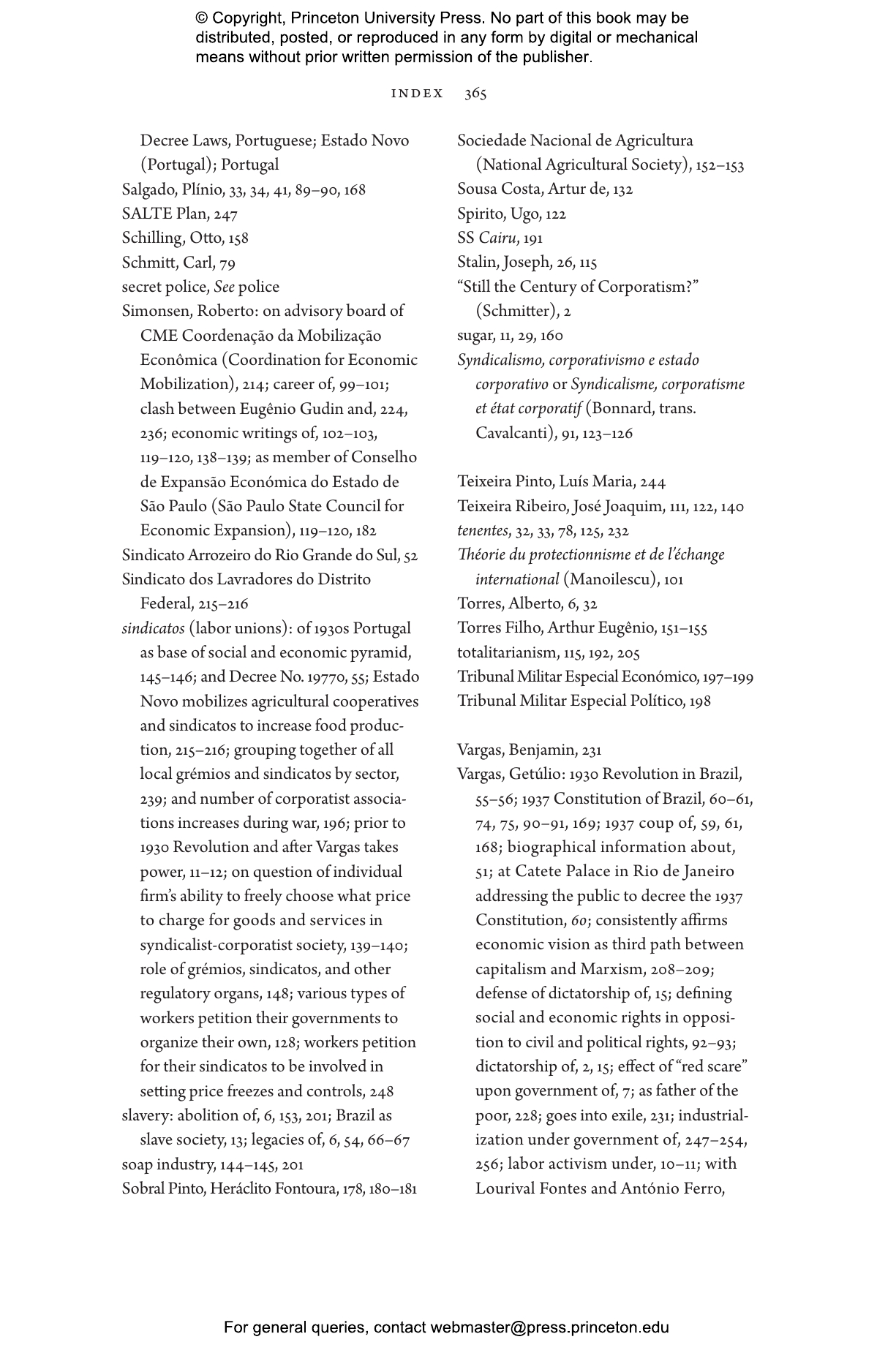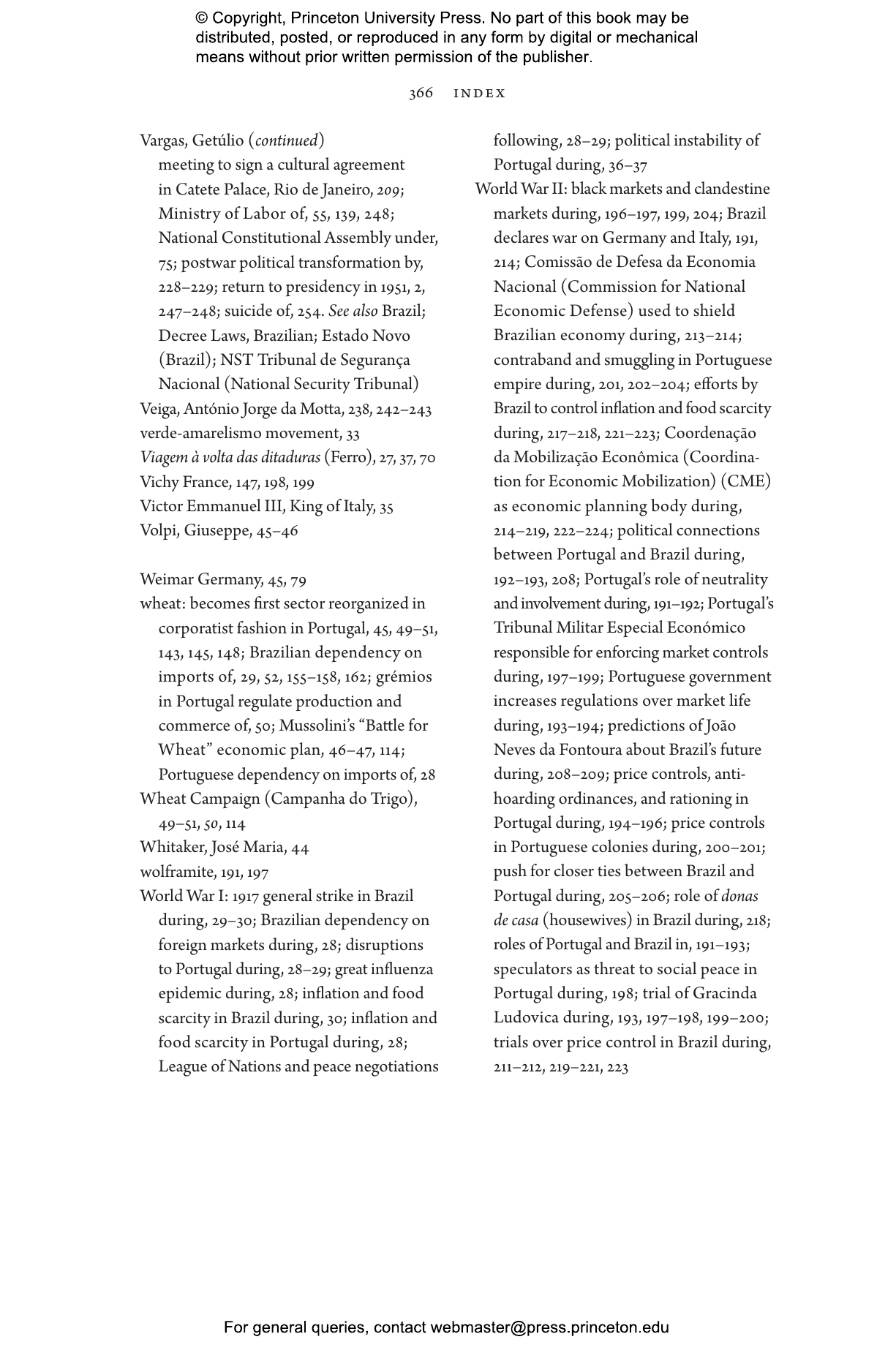Following the Great Depression, as the world searched for new economic models, Brazil and Portugal experimented with corporatism as a “third path” between laissez-faire capitalism and communism. In a corporatist society, the government vertically integrates economic and social groups into the state so that it can manage labor and economic production. In the 1930s, the dictatorships of Getúlio Vargas in Brazil and António de Oliveira Salazar in the Portuguese Empire seized upon corporatist ideas to jump-start state-led economic development. In A Third Path, Melissa Teixeira examines these pivotal but still understudied initiatives.
What distinguished Portuguese and Brazilian corporatism from other countries’ experiments with the mixed economy was how Vargas and Salazar dismantled liberal democratic institutions, celebrating their efforts to limit individual freedoms and property in pursuit of economic recovery and social peace. By tracing the movement of people and ideas across the South Atlantic, Teixeira vividly shows how two countries not often studied for their economic creativity became major centers for policy experimentation. Portuguese and Brazilian officials created laws and agencies to control pricing and production, which in turn generated new social frictions and economic problems, as individuals and firms tried to evade the rules. And yet, Teixeira argues, despite the failings and frustrations of Brazil’s and Portugal’s corporatist experiments, the ideas and institutions tested in the 1930s and 1940s constituted a new legal and technical tool kit for the rise of economic planning, shaping how governments regulate labor and market relations to the present day.
Melissa Teixeira is assistant professor of history at the University of Pennsylvania.
“Melissa Teixeira’s wonderful book makes a very persuasive argument for seeing corporatism as a ‘third path’ to development in the history of economics in the twentieth century. She demonstrates that we need to rethink the relationship of states and markets in our notions of capitalist development.”—Marshall Eakin, author of Becoming Brazilians: Race and National Identity in Twentieth-Century Brazil
“It is not easy for a scholar to demonstrate the significance of ideas that have been dismissed as impractical at best and protofascist at worst, but historian Melissa Teixeira, in A Third Path, has risen to the challenge. This deeply researched study not only explores the fate of the many corporatist measures adopted by regimes in Brazil and Portugal in response to the Great Depression, but also illuminates how corporatist ideas continued to inform economic approaches to national development even as corporatism fell into disrepute.”—Barbara Weinstein, author of The Color of Modernity: São Paulo and the Making of Race and Nation in Brazil
“Corporatism aligns uneasily with common binaries in the history of political economy, and as a result has fallen to the margins of many accounts. In this authoritative reassessment, Melissa Teixeira brings it into the foreground, revealing its origins in the breakdown of liberal internationalism and its enduring influence over patterns of postwar development. Expansively framed, eloquently written, and full of surprises, A Third Path brings needed clarity to the history of an enigmatic variety of capitalism.”—Angus Burgin, author of The Great Persuasion: Reinventing Free Markets since the Depression
“In this magnificently researched and beautifully written book, Melissa Teixeira goes beyond just questioning the capitalist/socialist dichotomies that would mark the twentieth century. Teixeira stares directly at the most confounding and ideologically eclectic phenomenon of modern times: the social, political, and, above all, economic experiment called corporatism.”—Amy Chazkel, author of Laws of Chance: Brazil’s Clandestine Lottery and the Making of Urban Public Life
